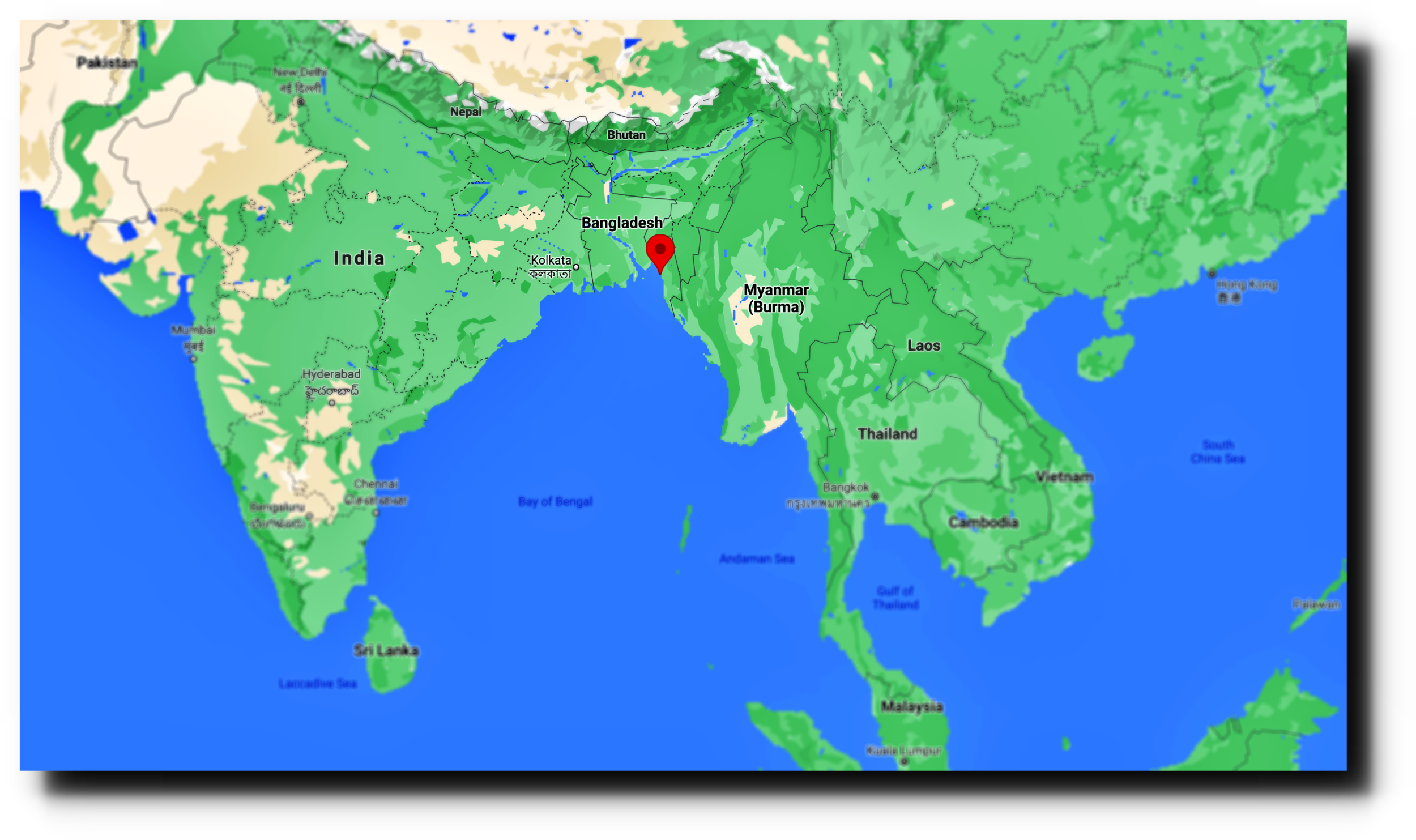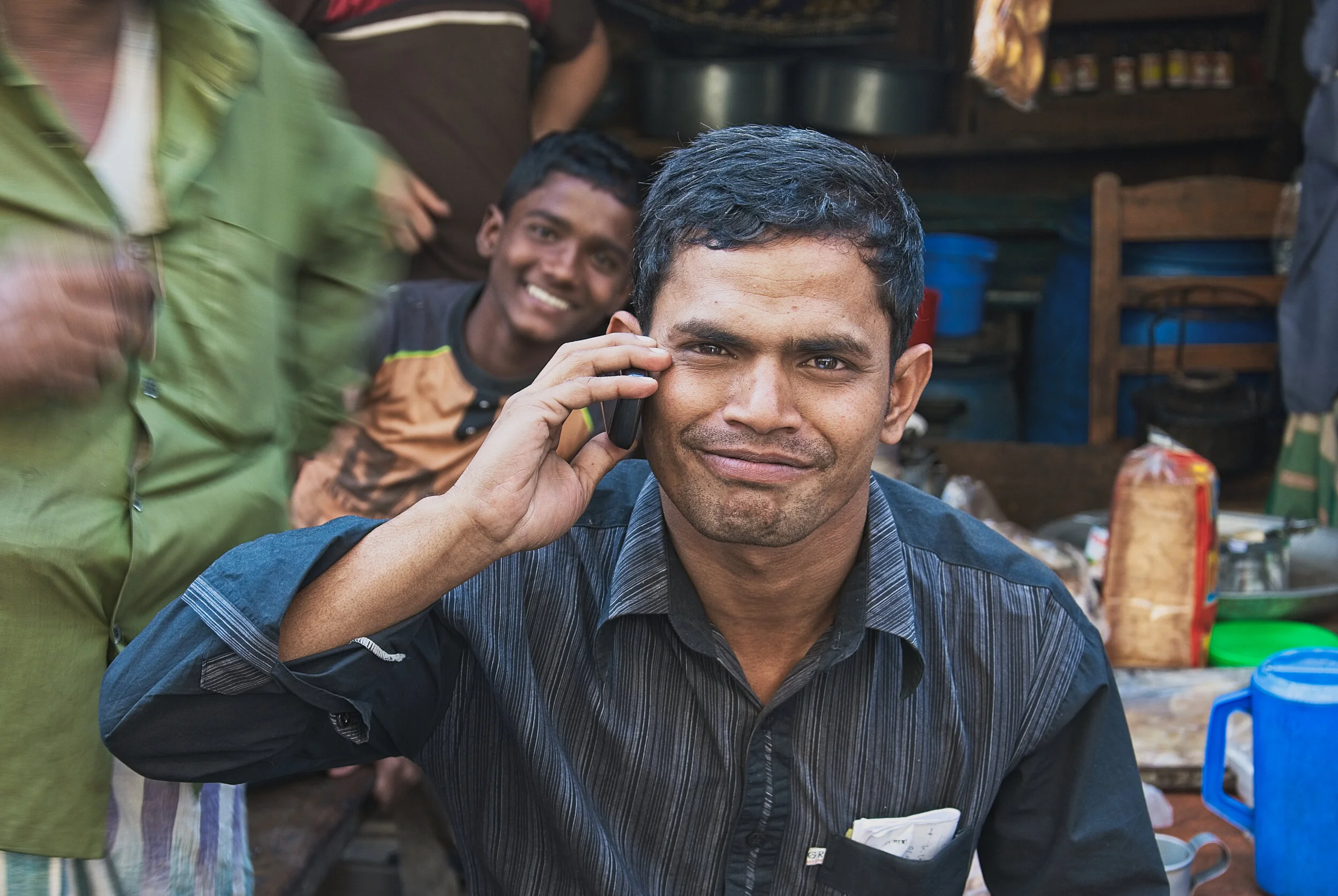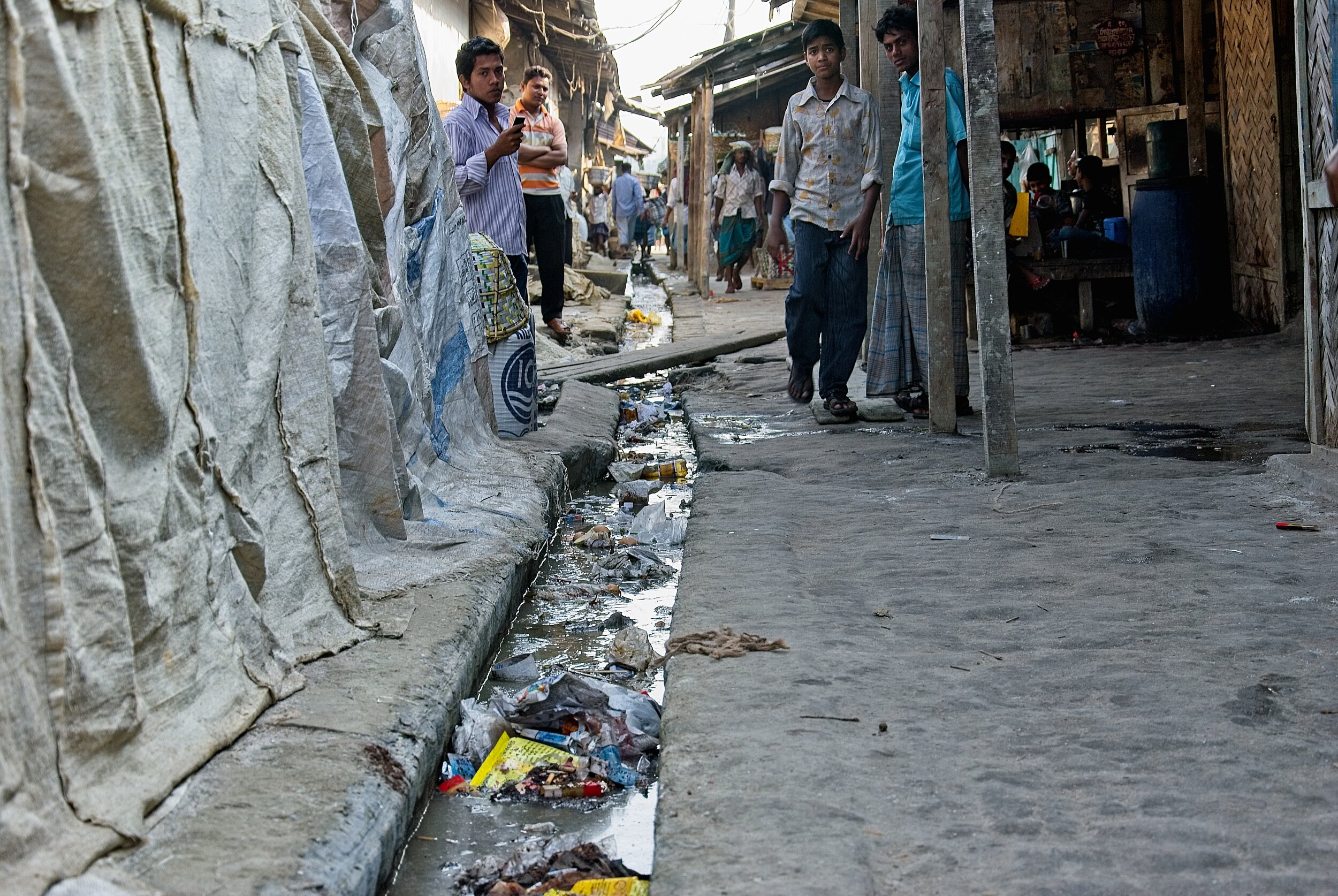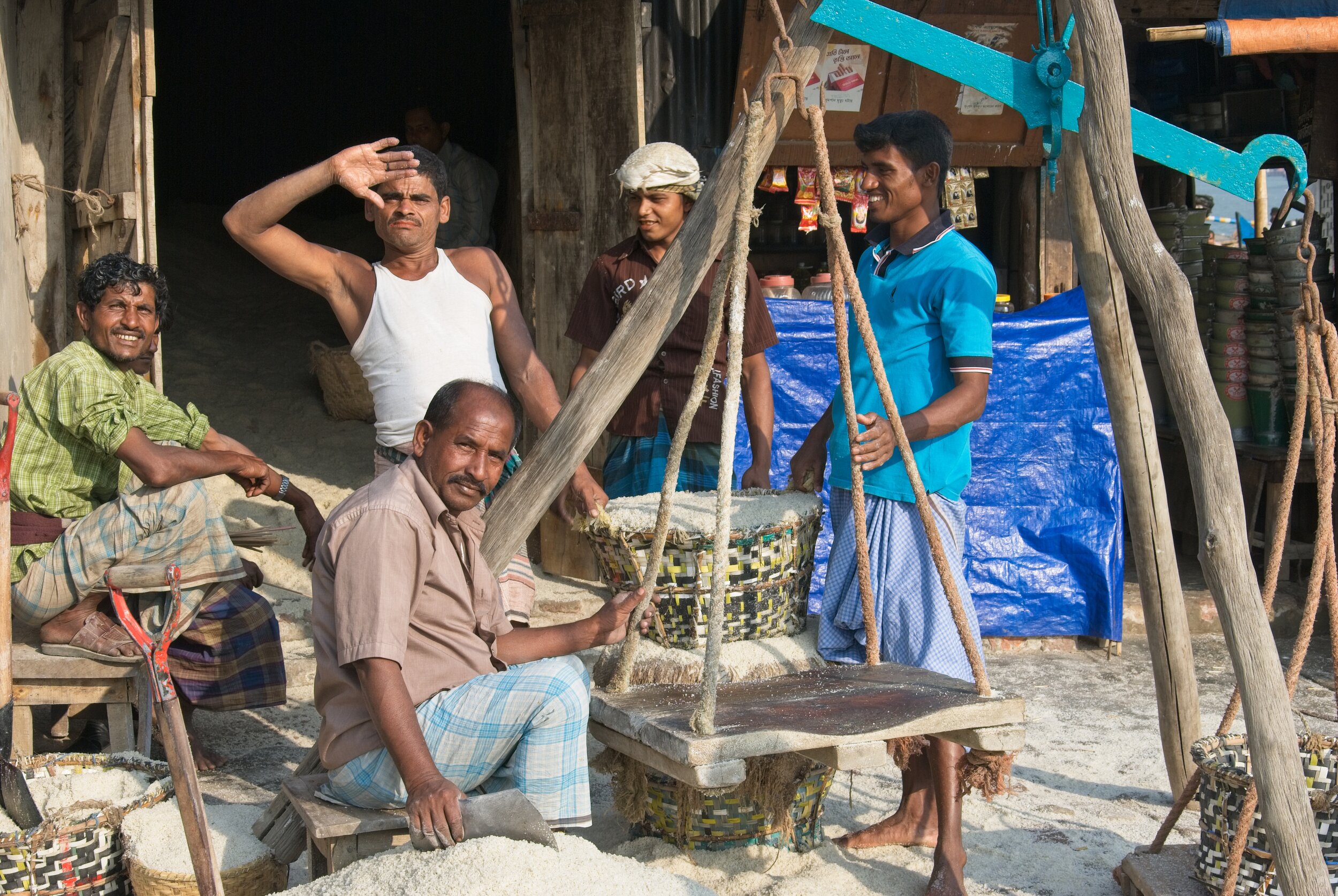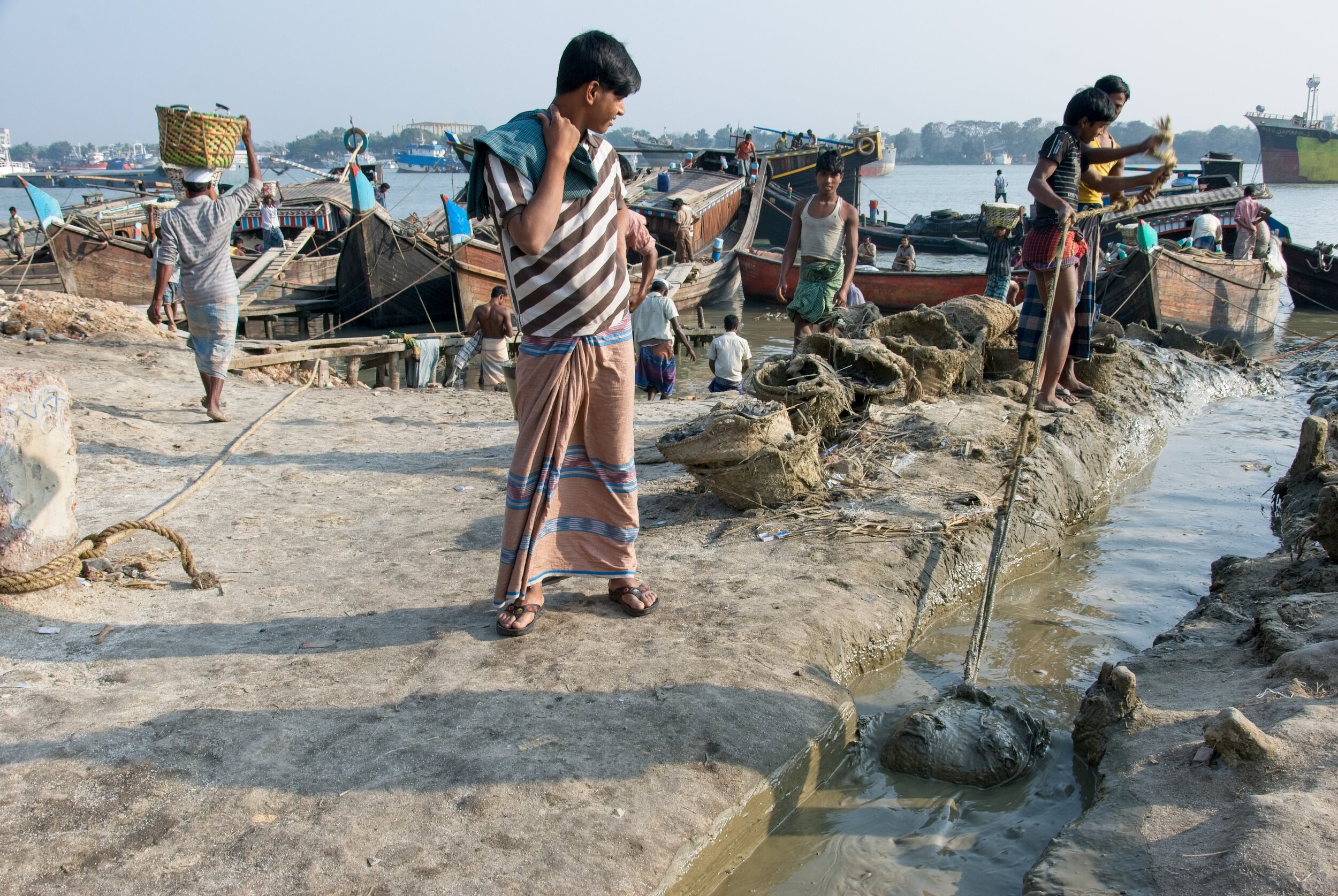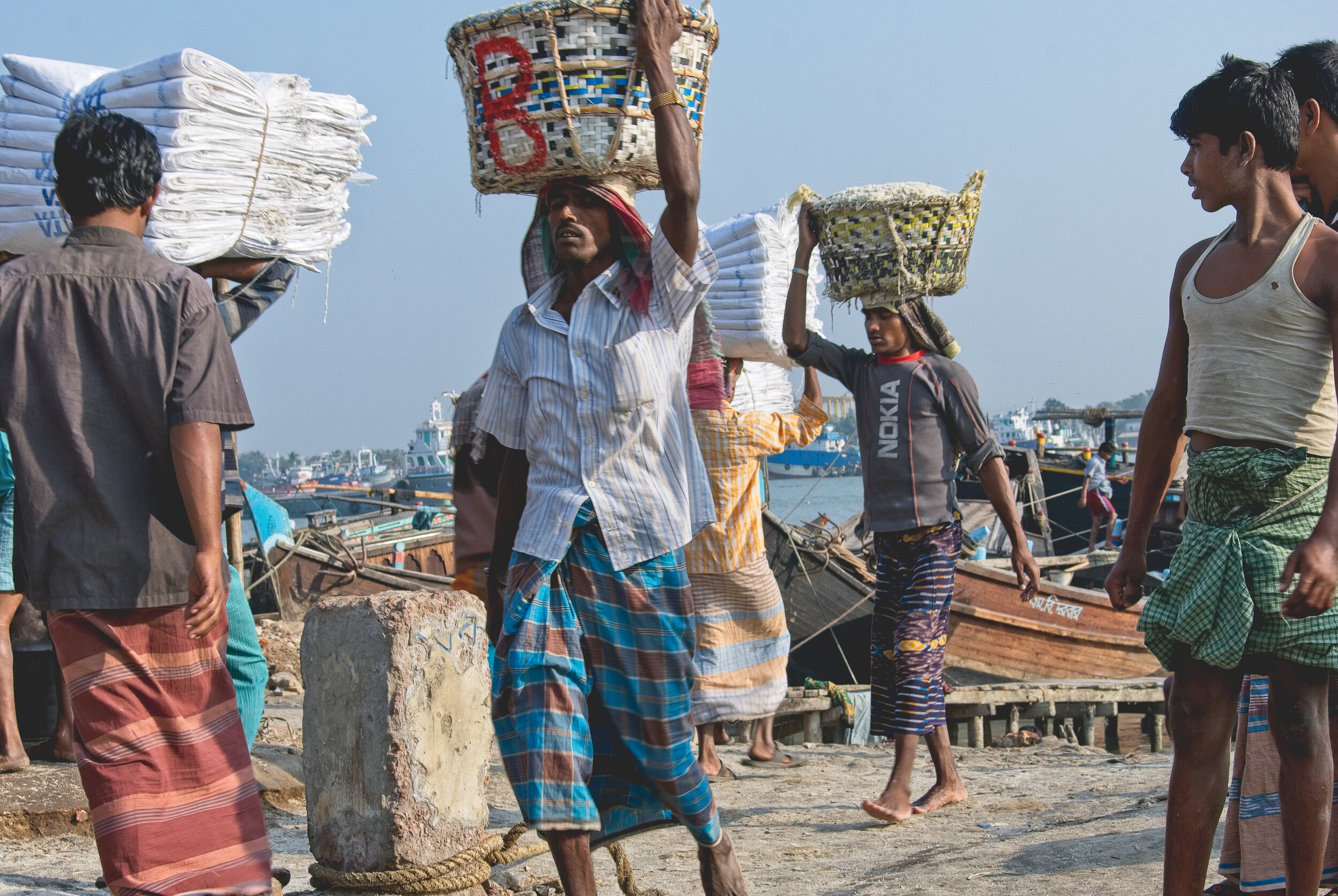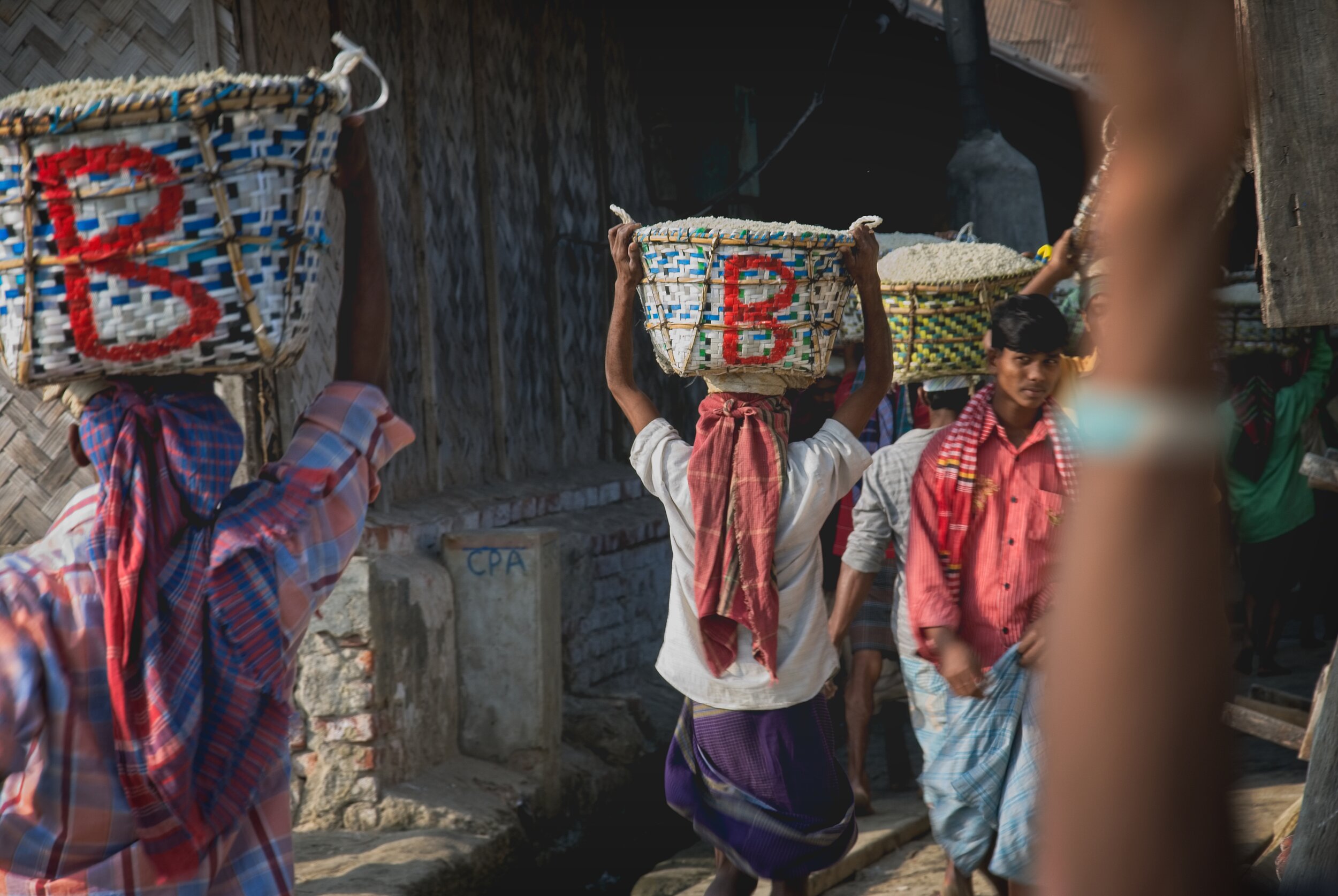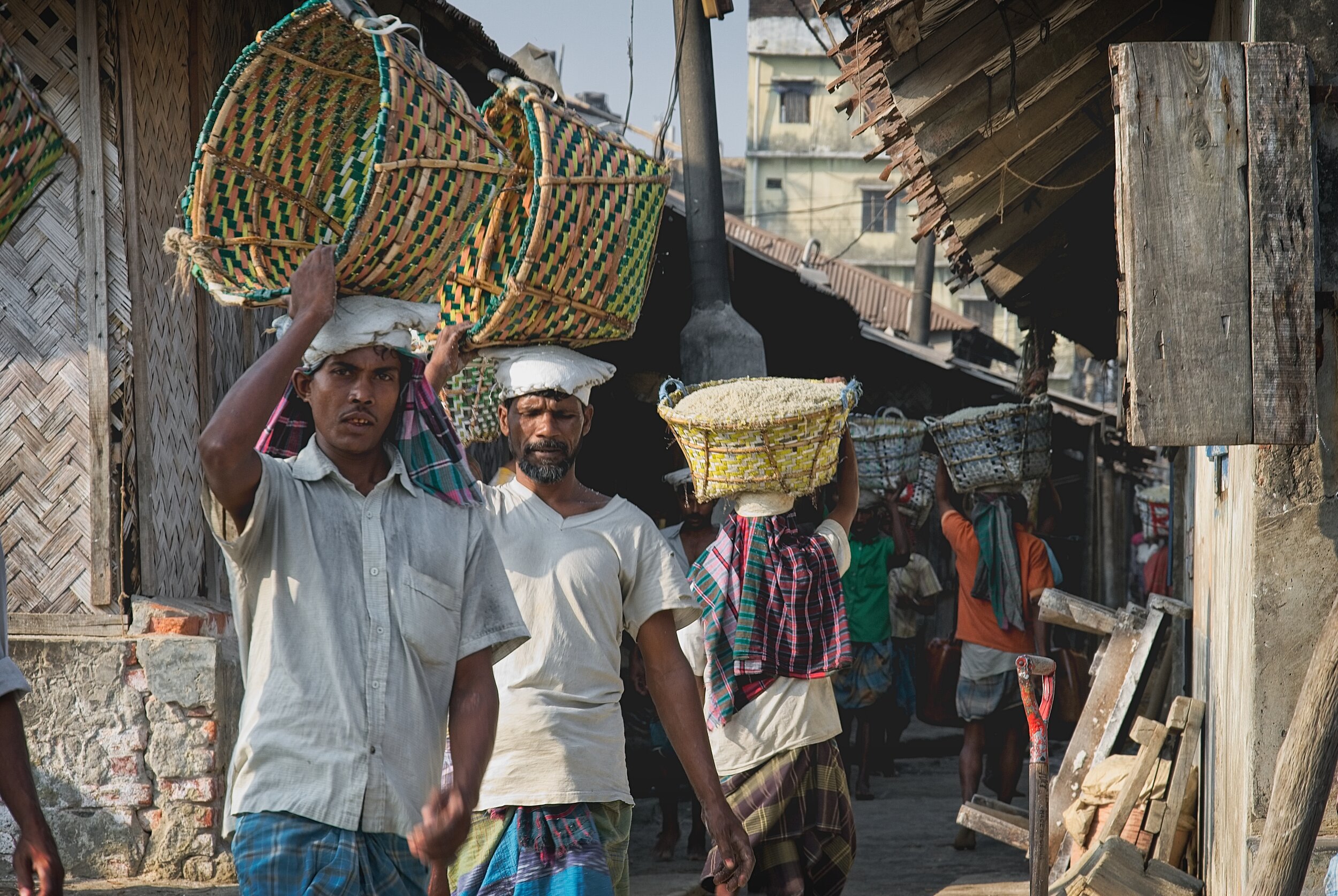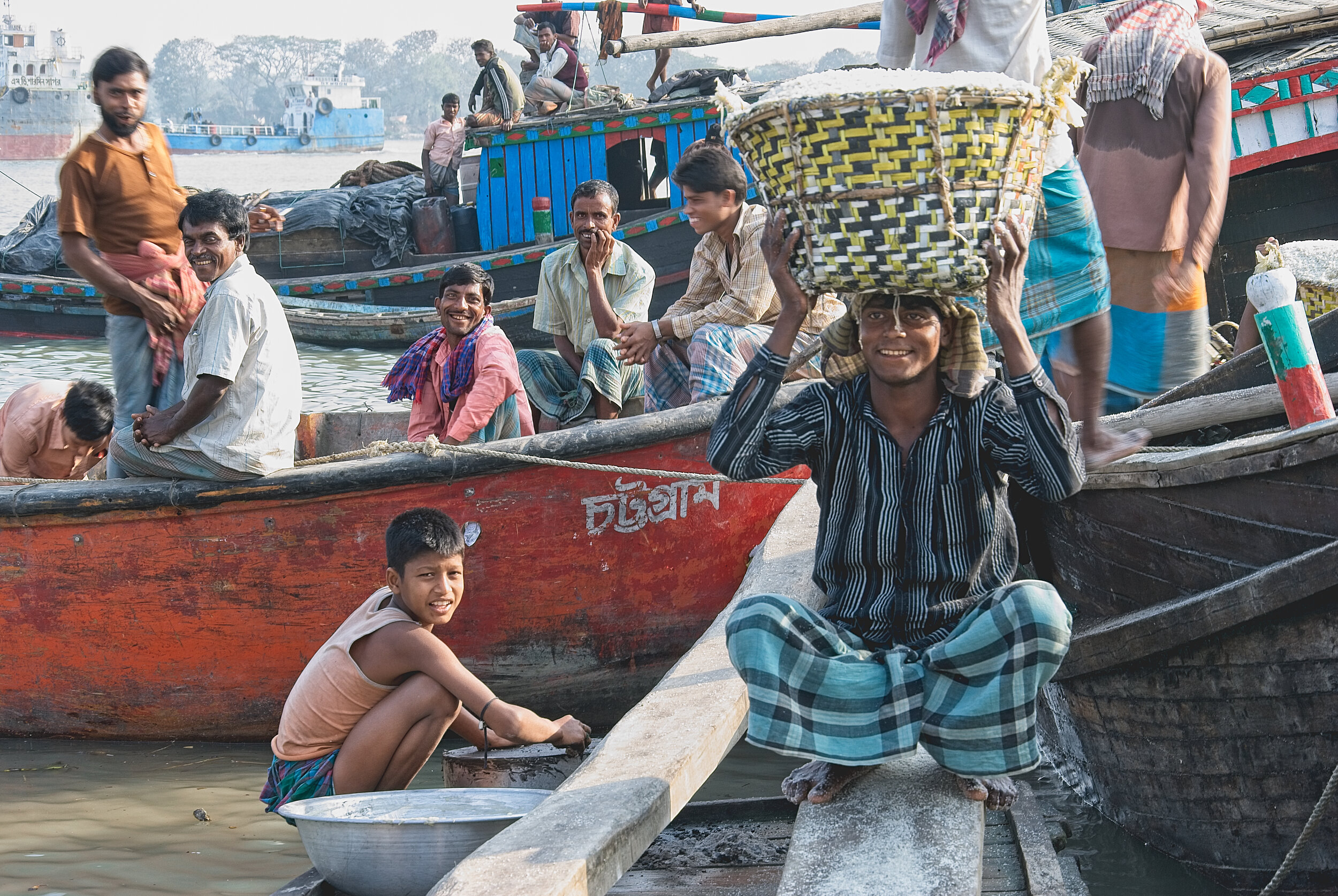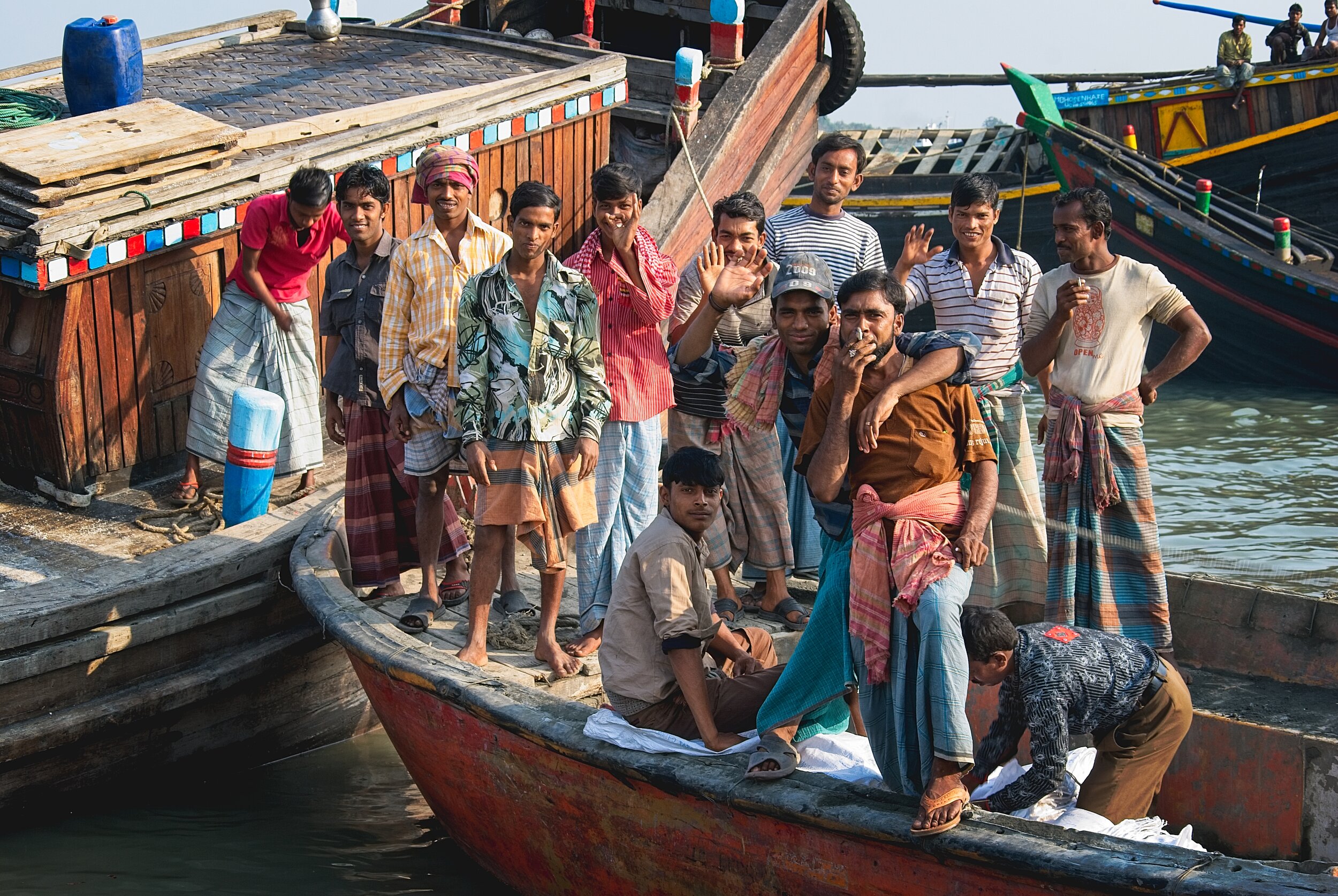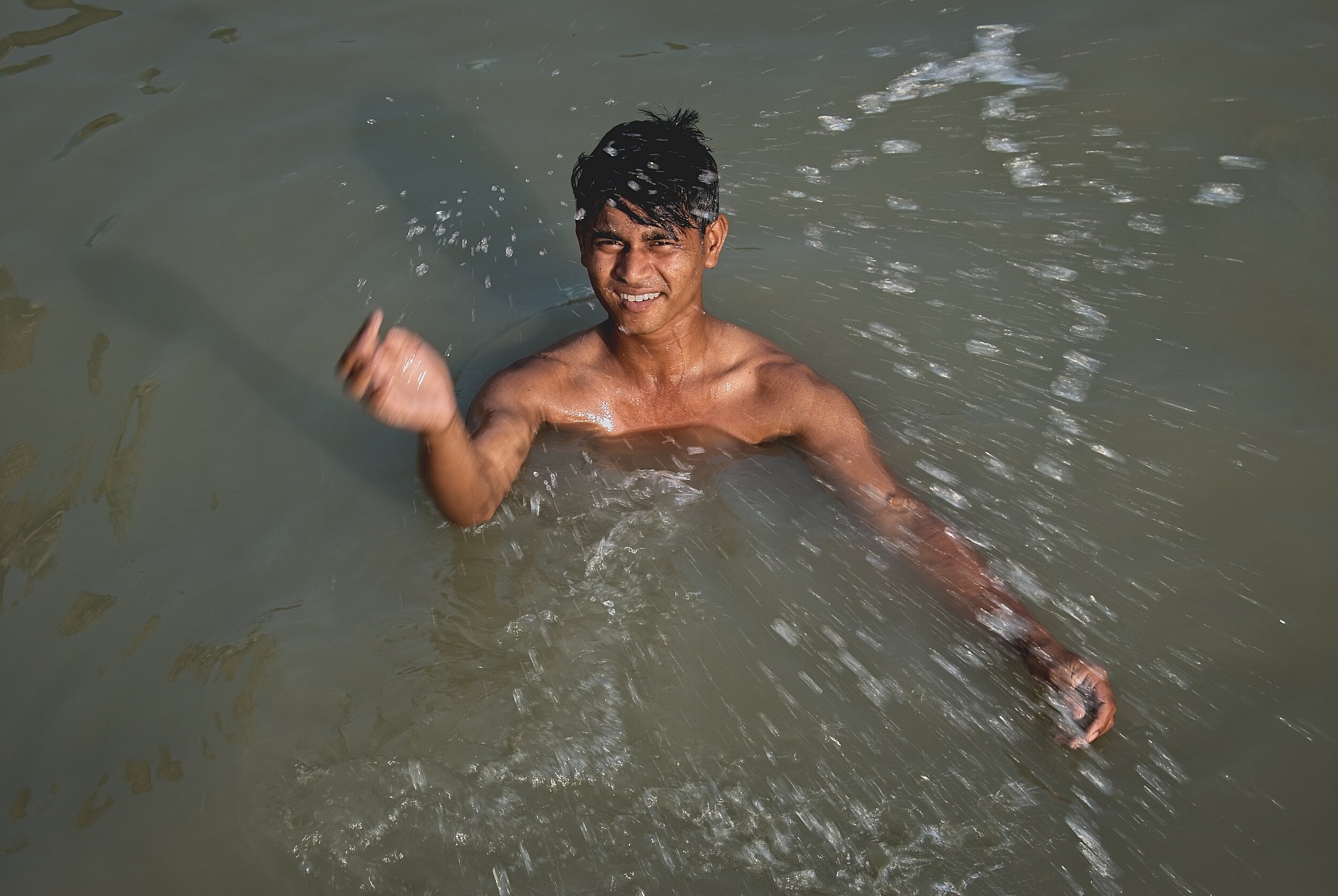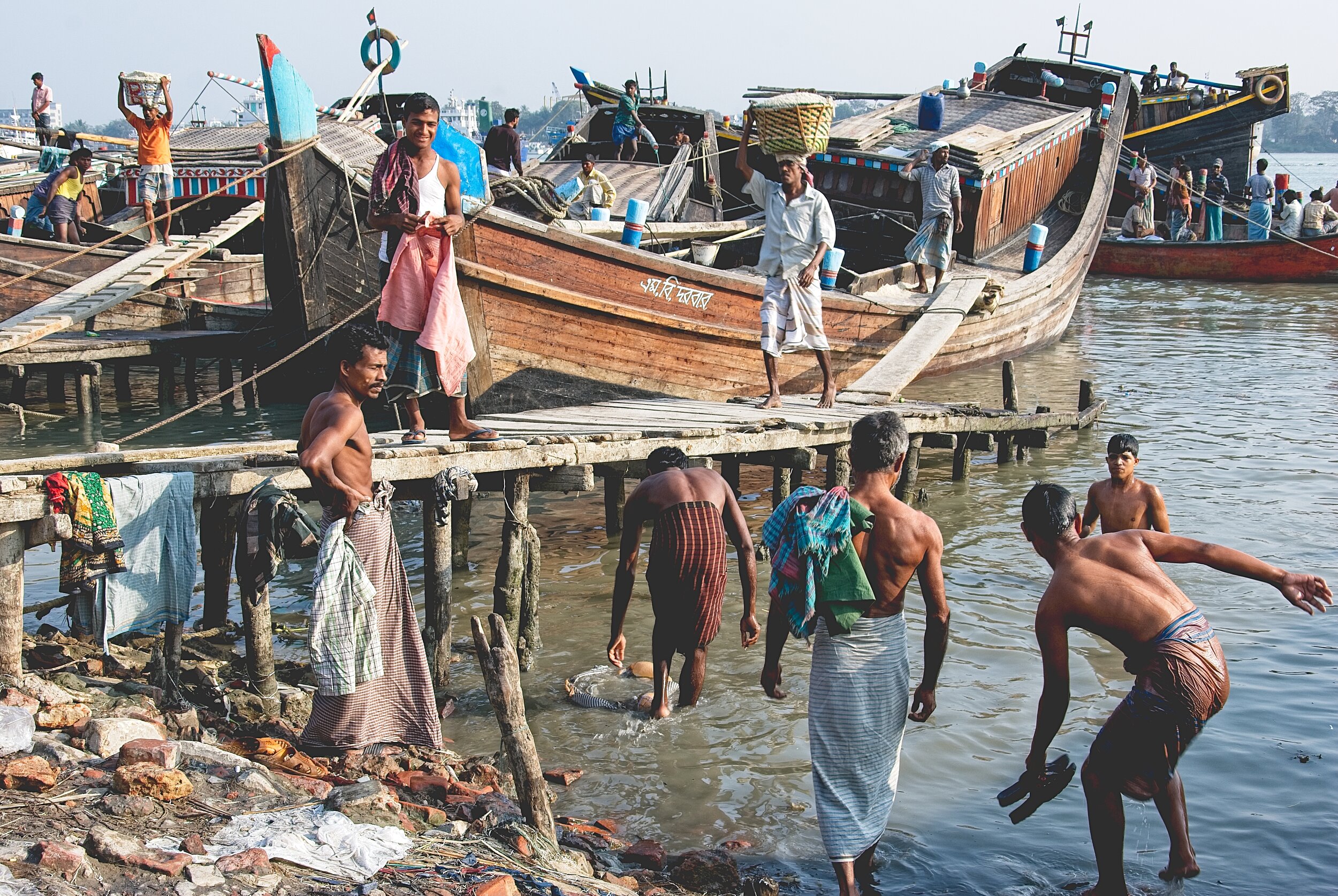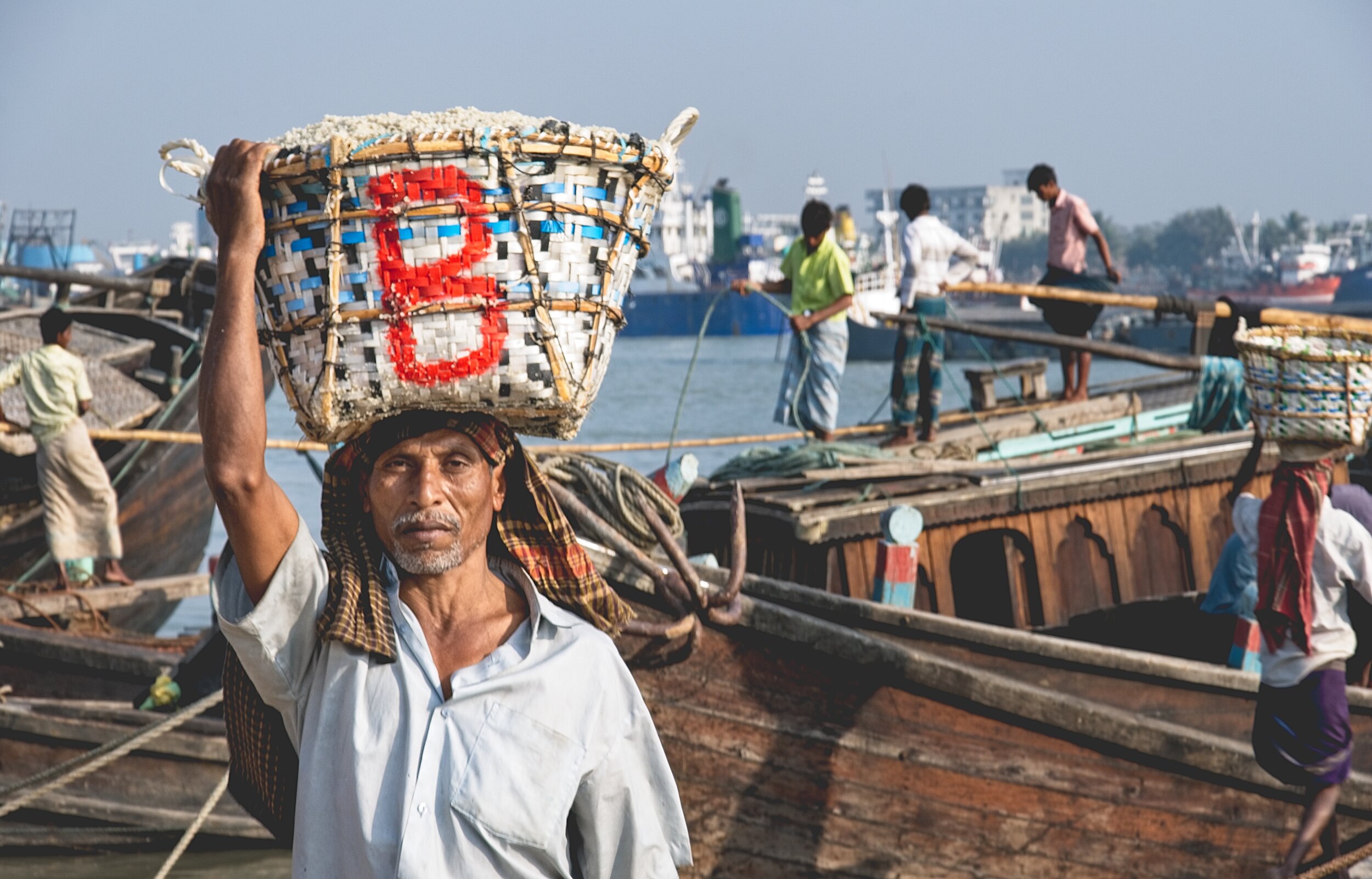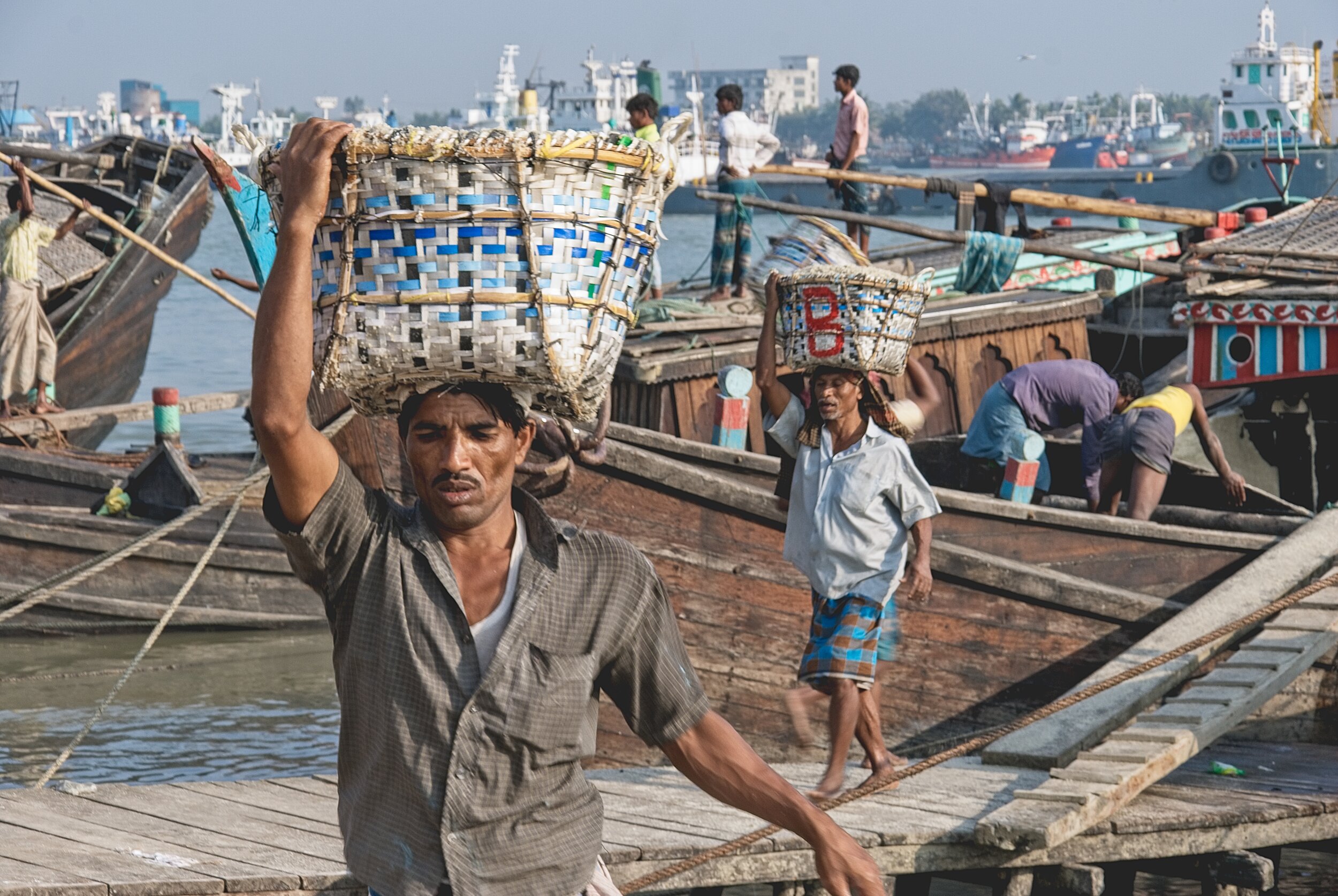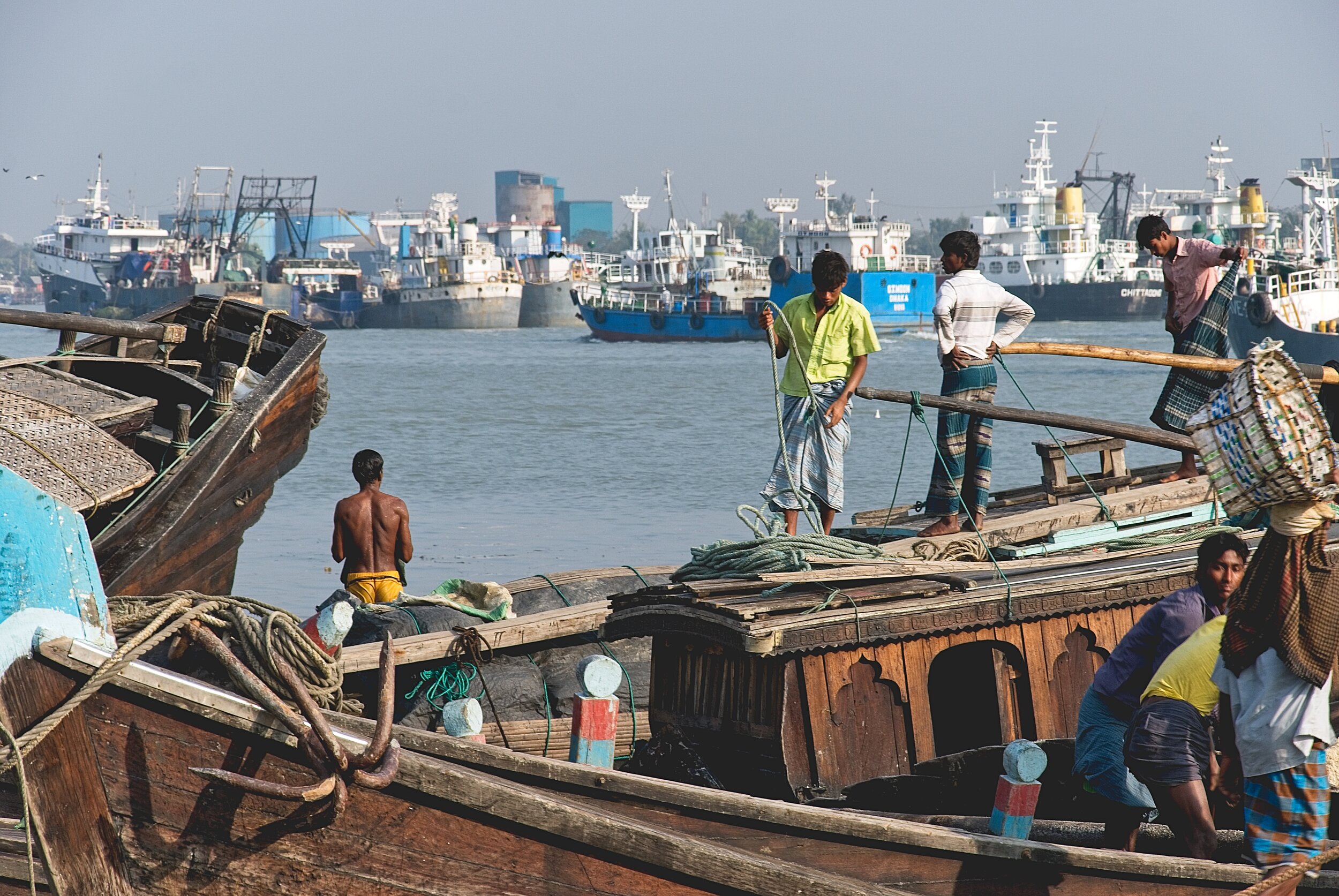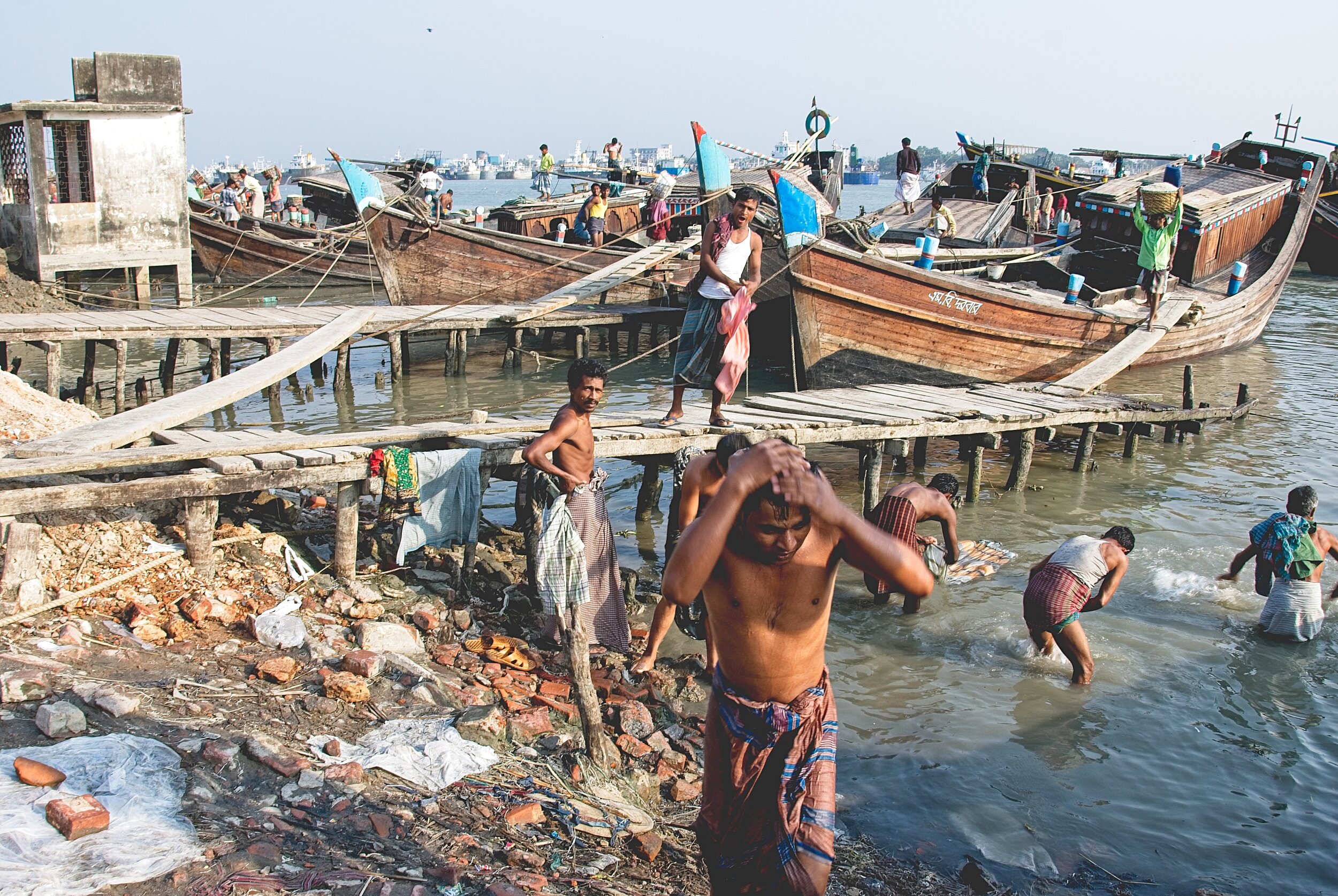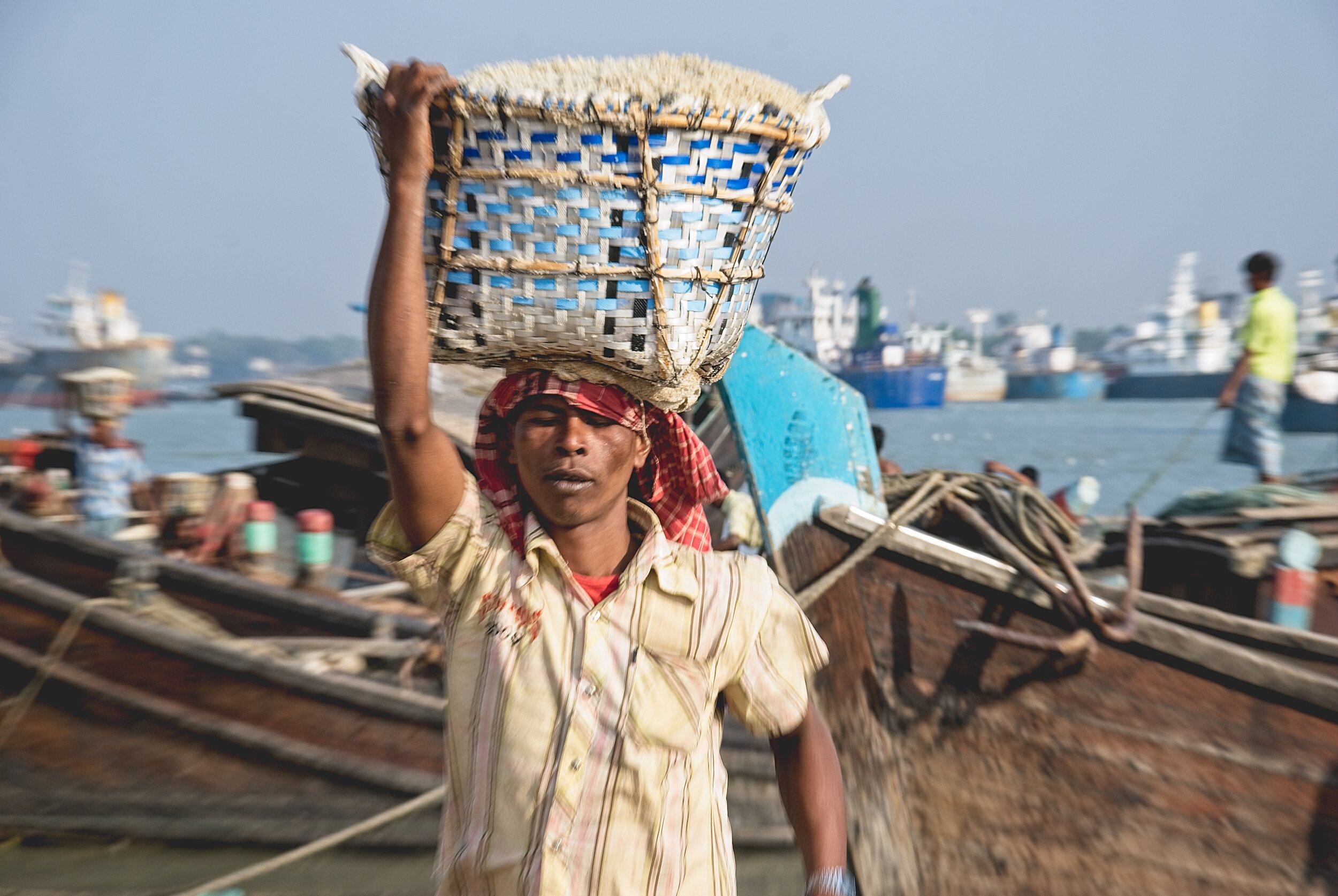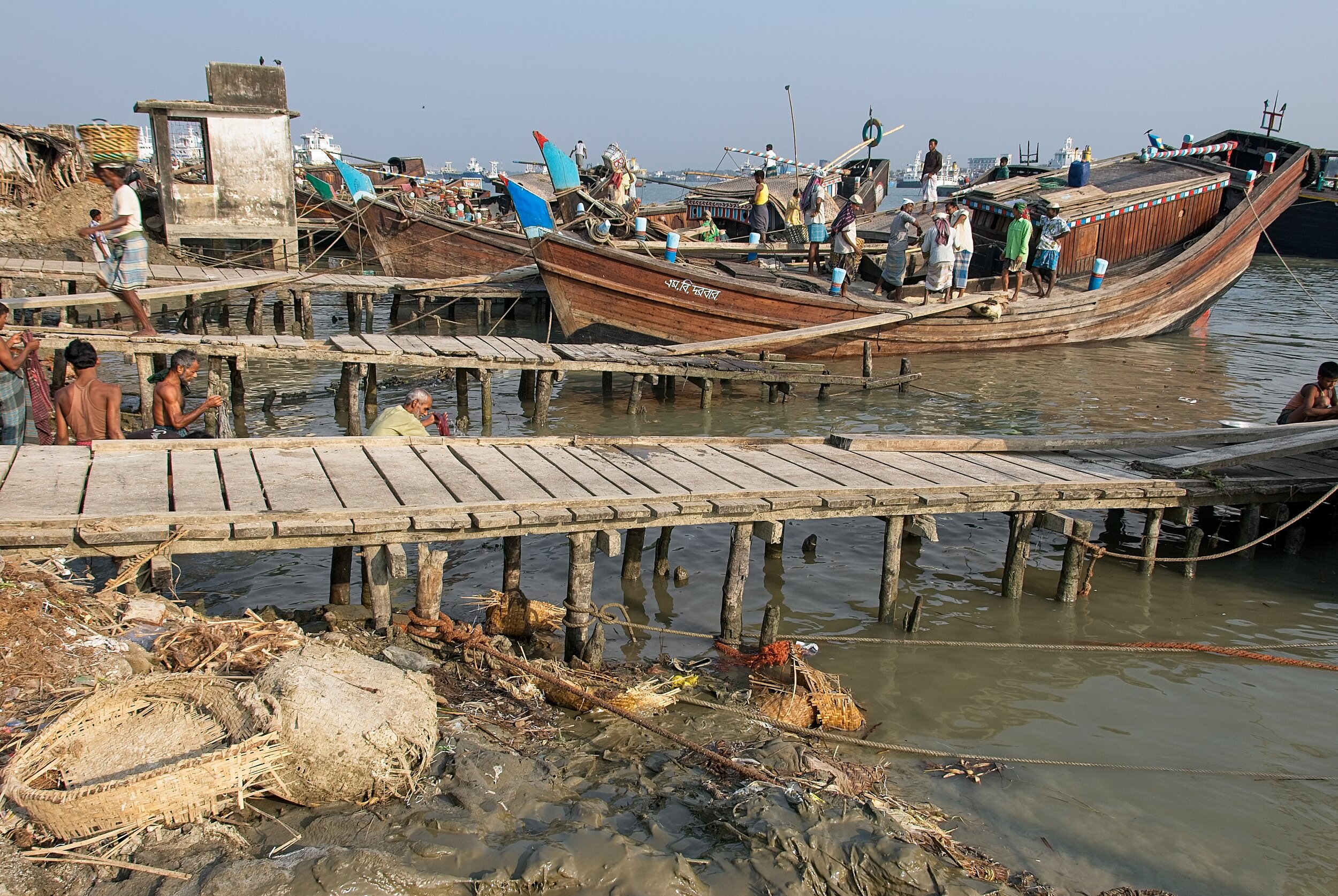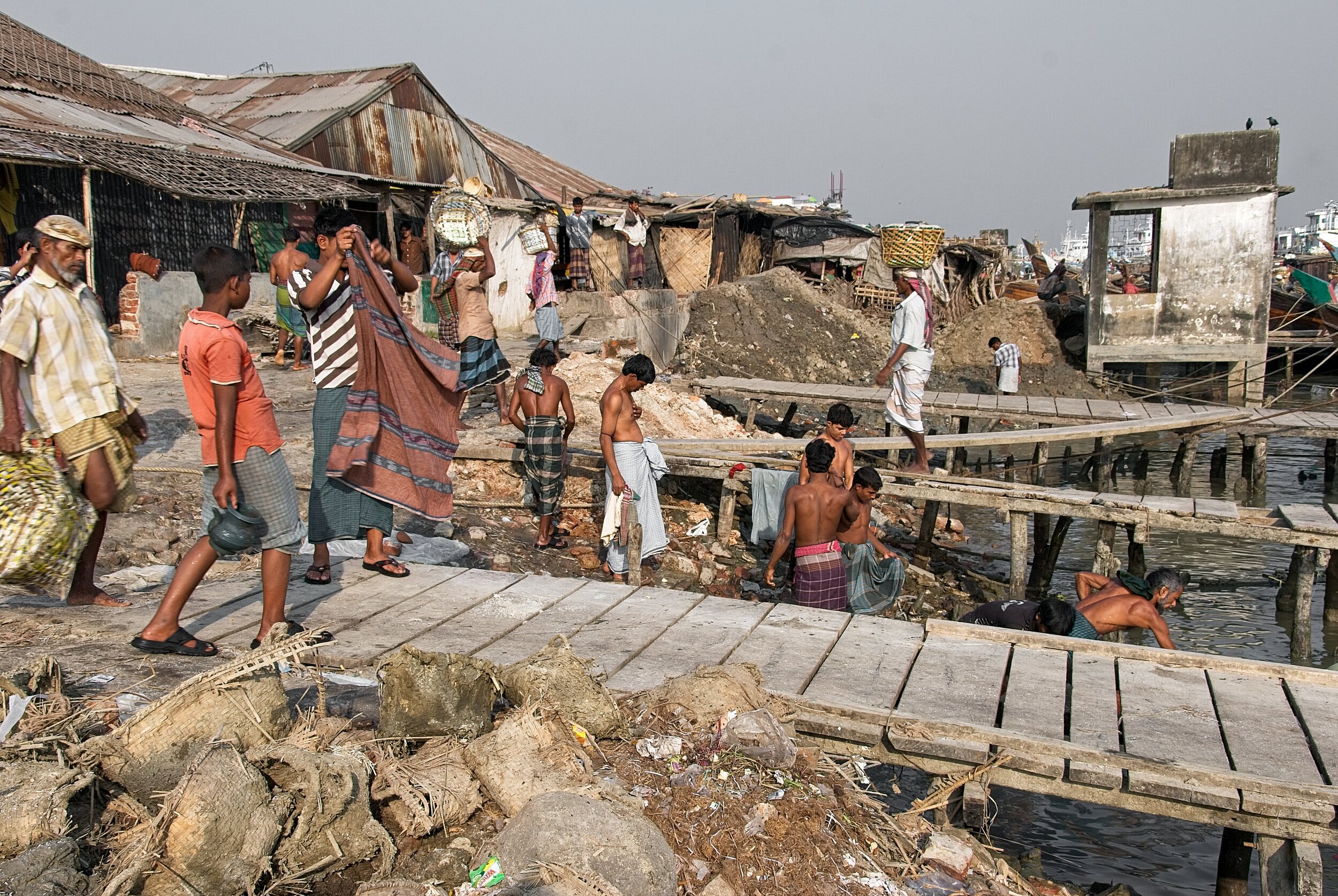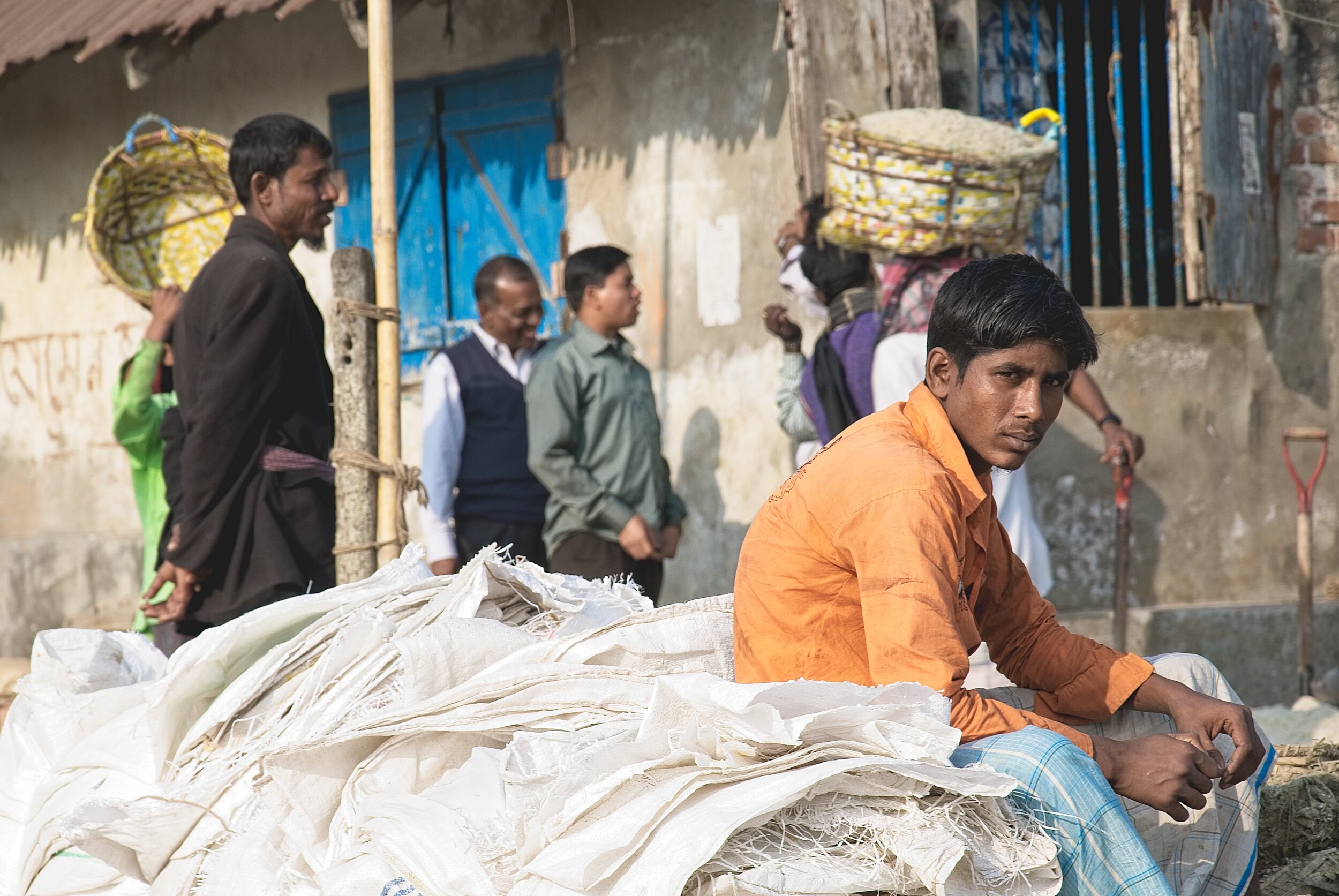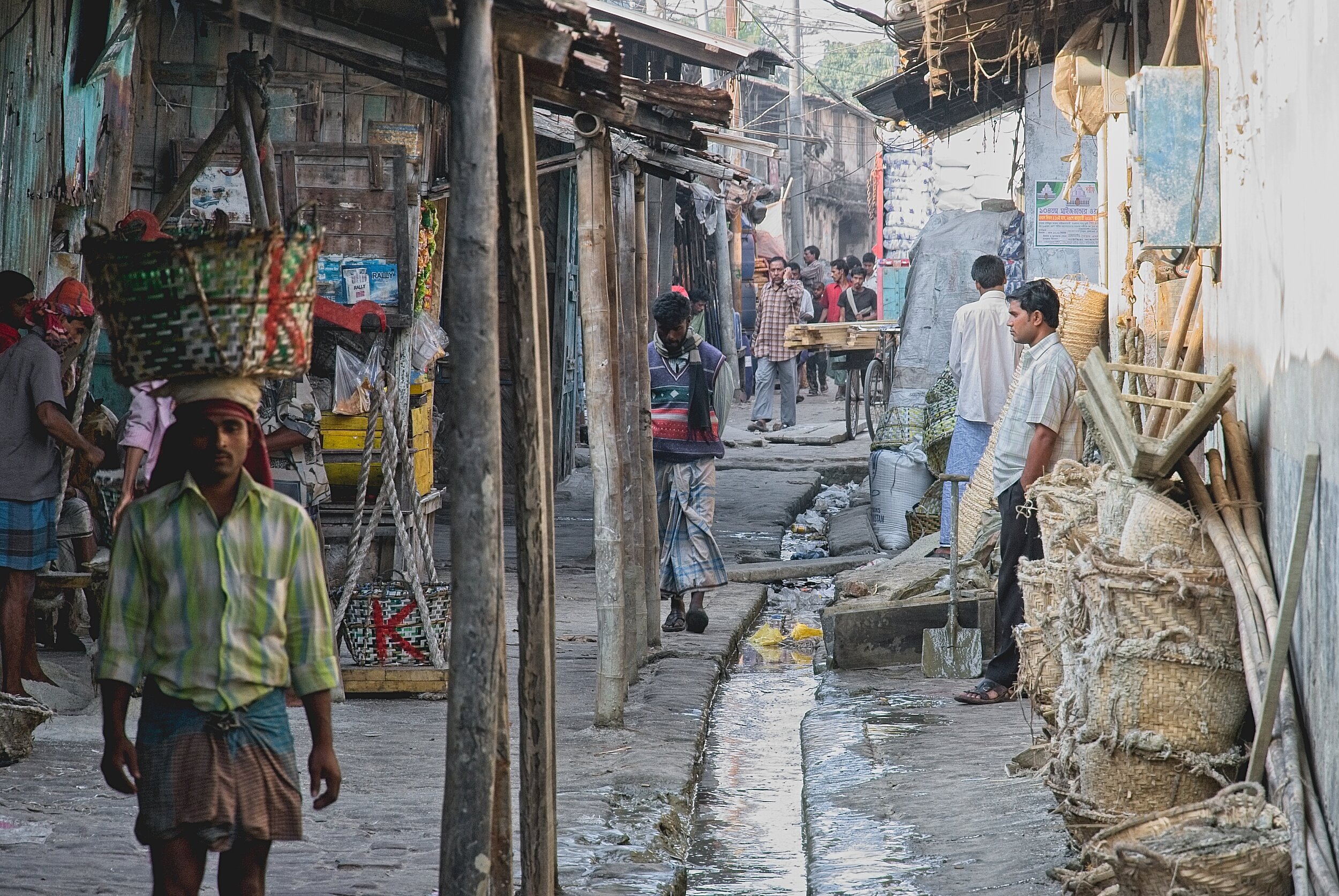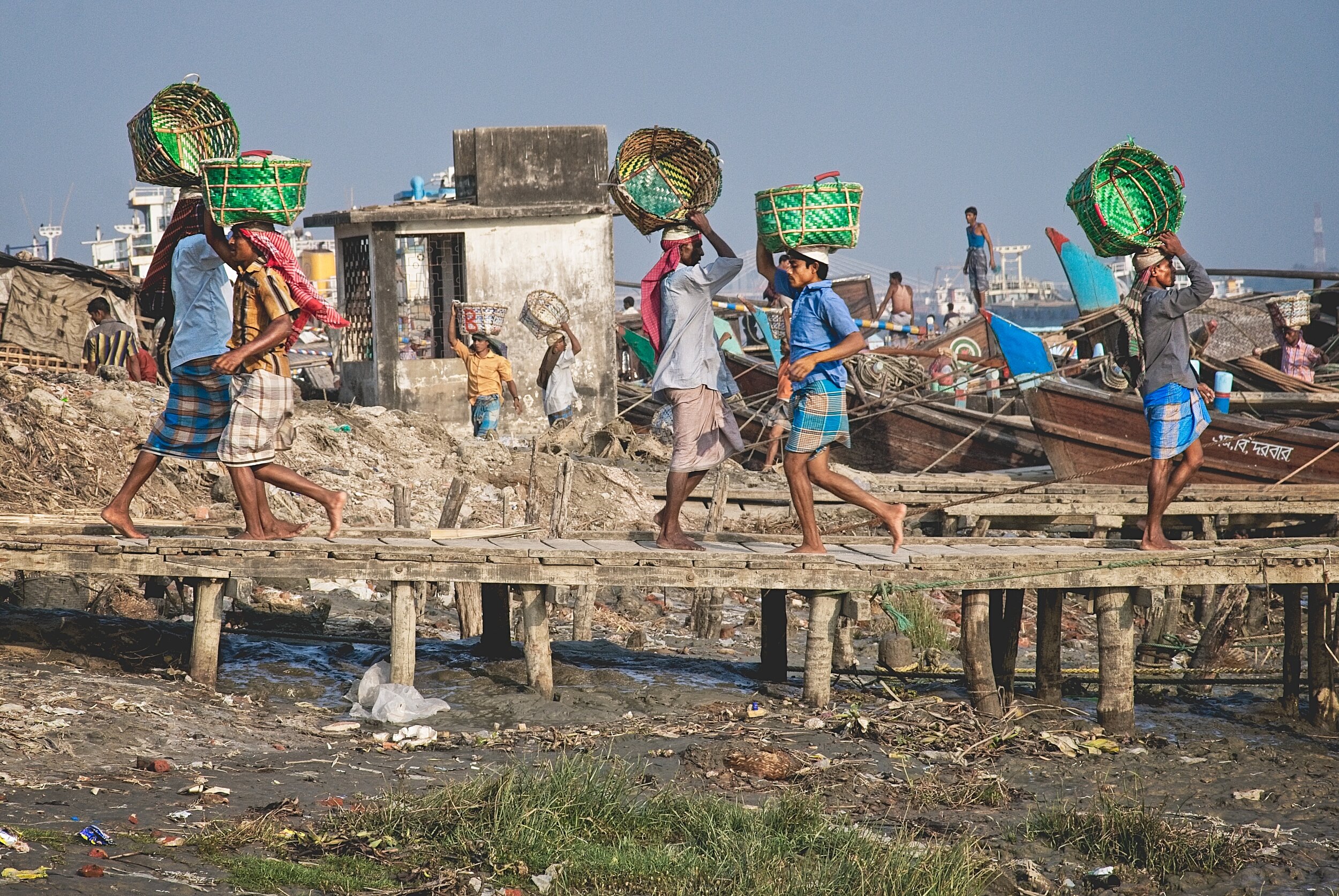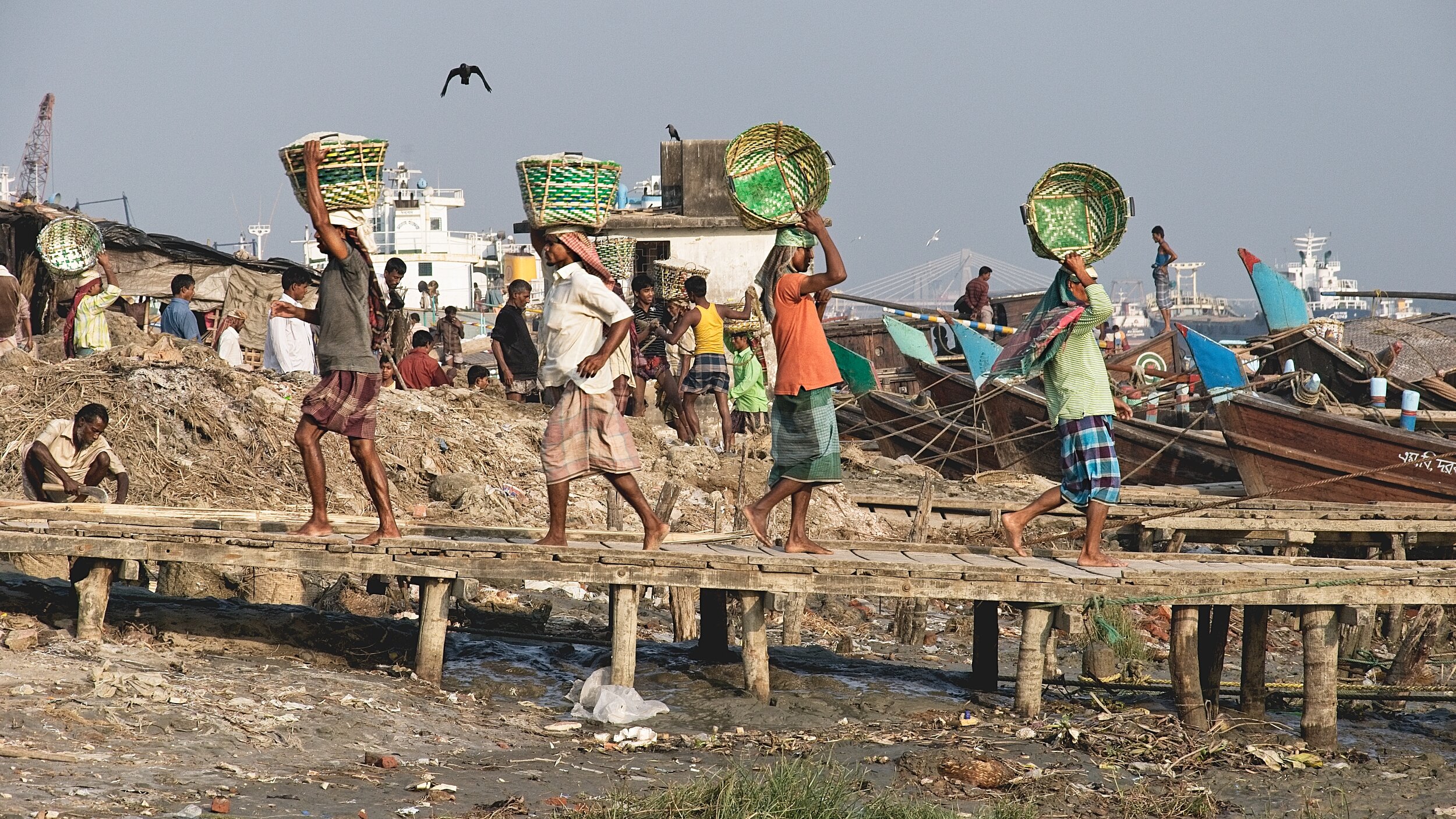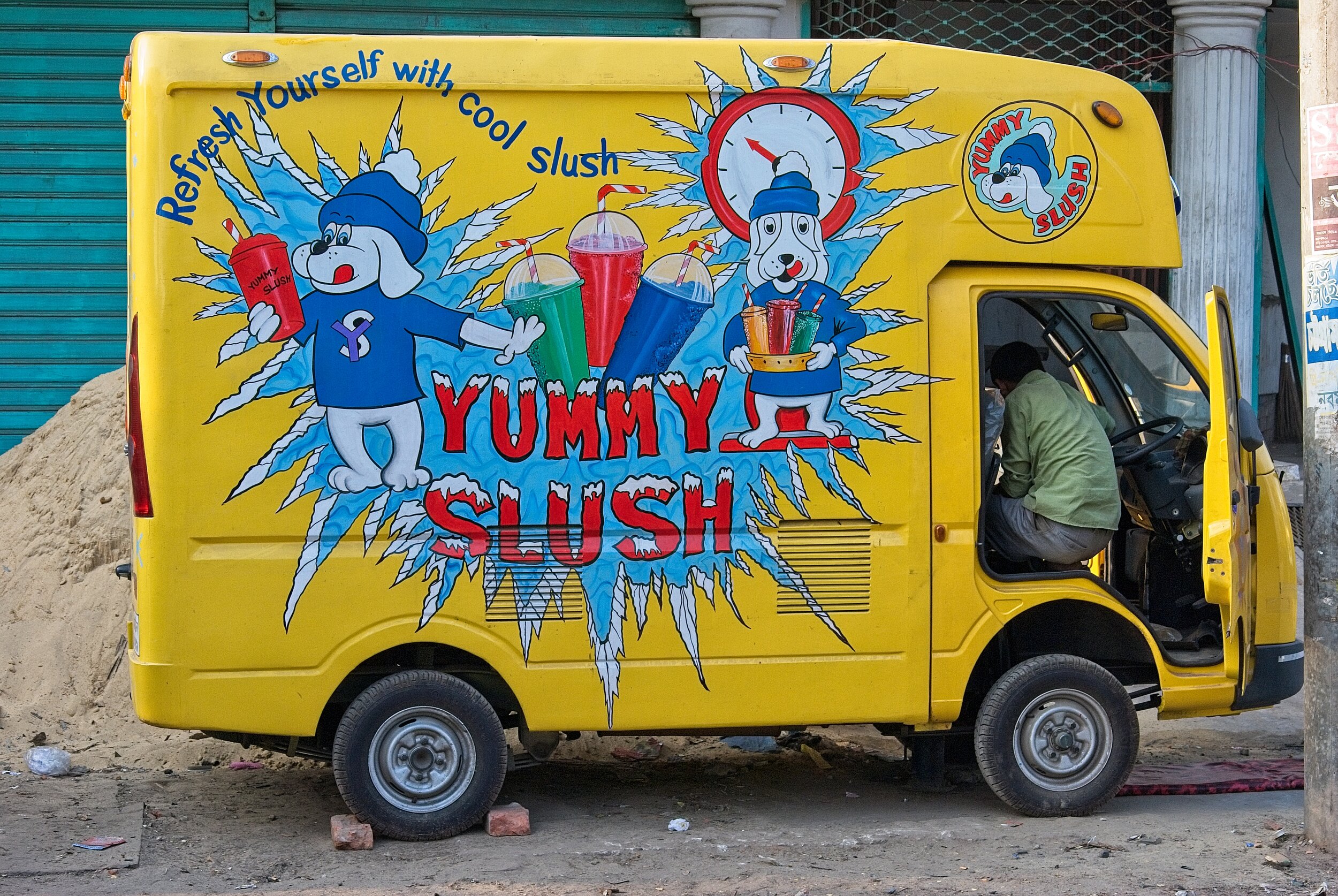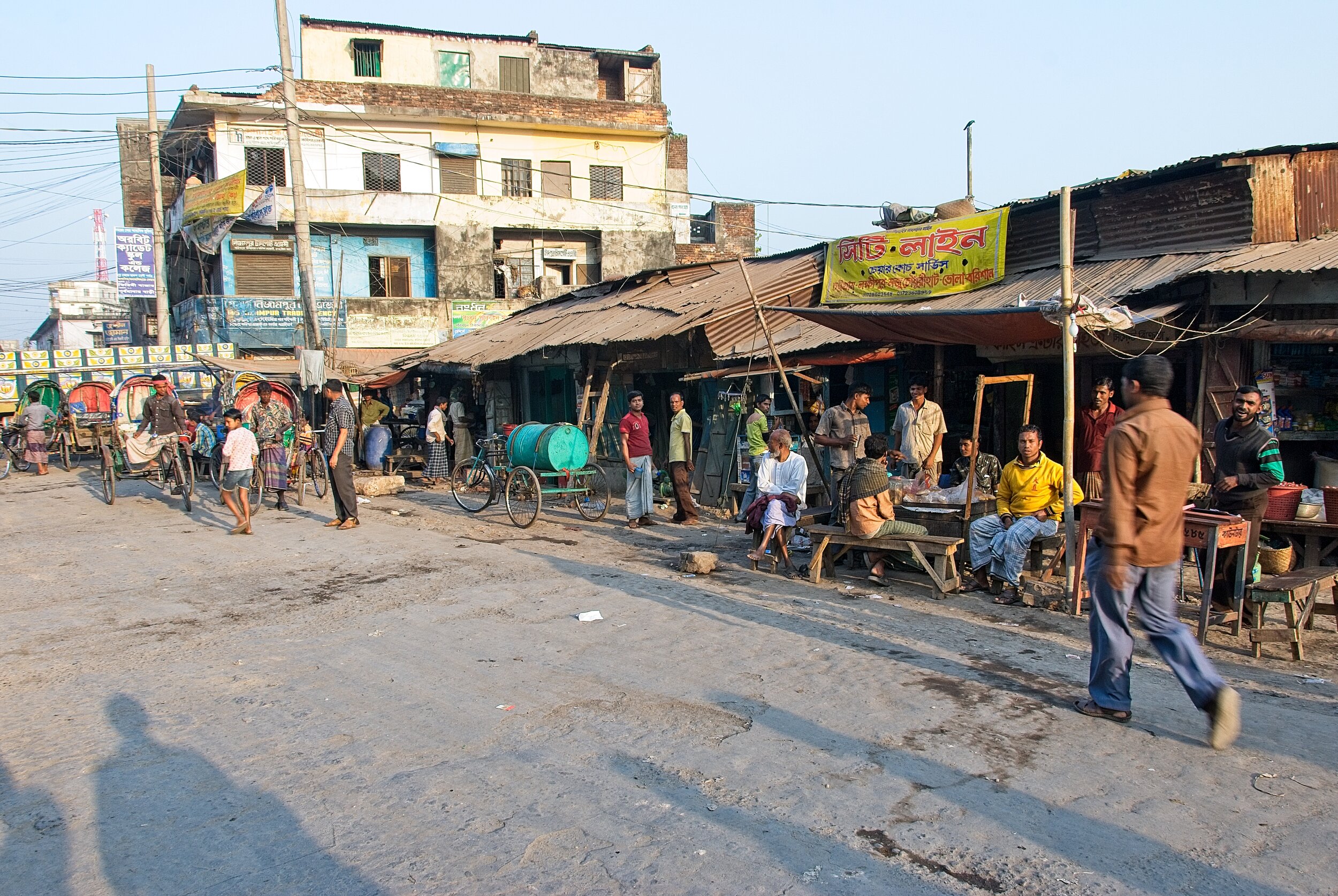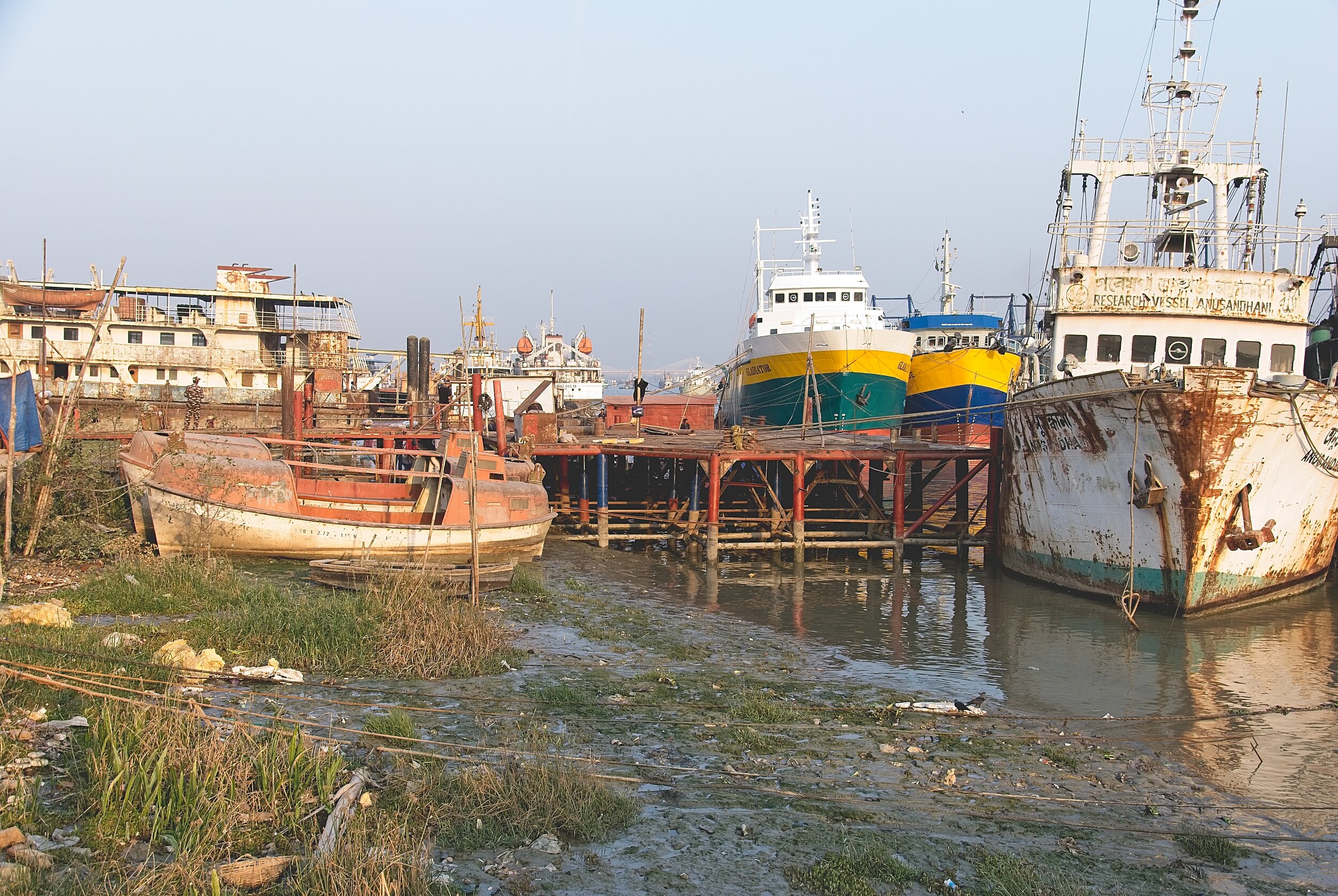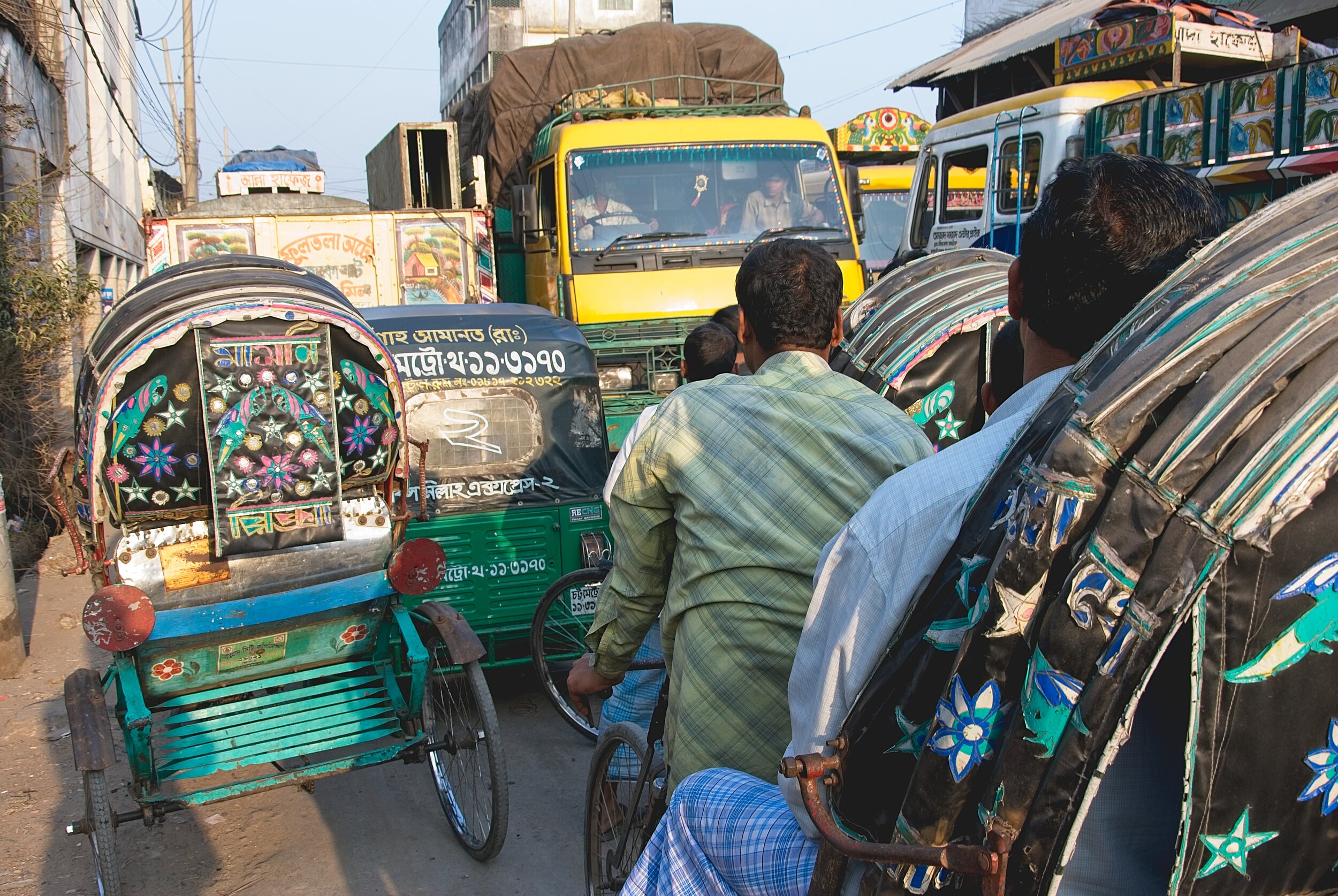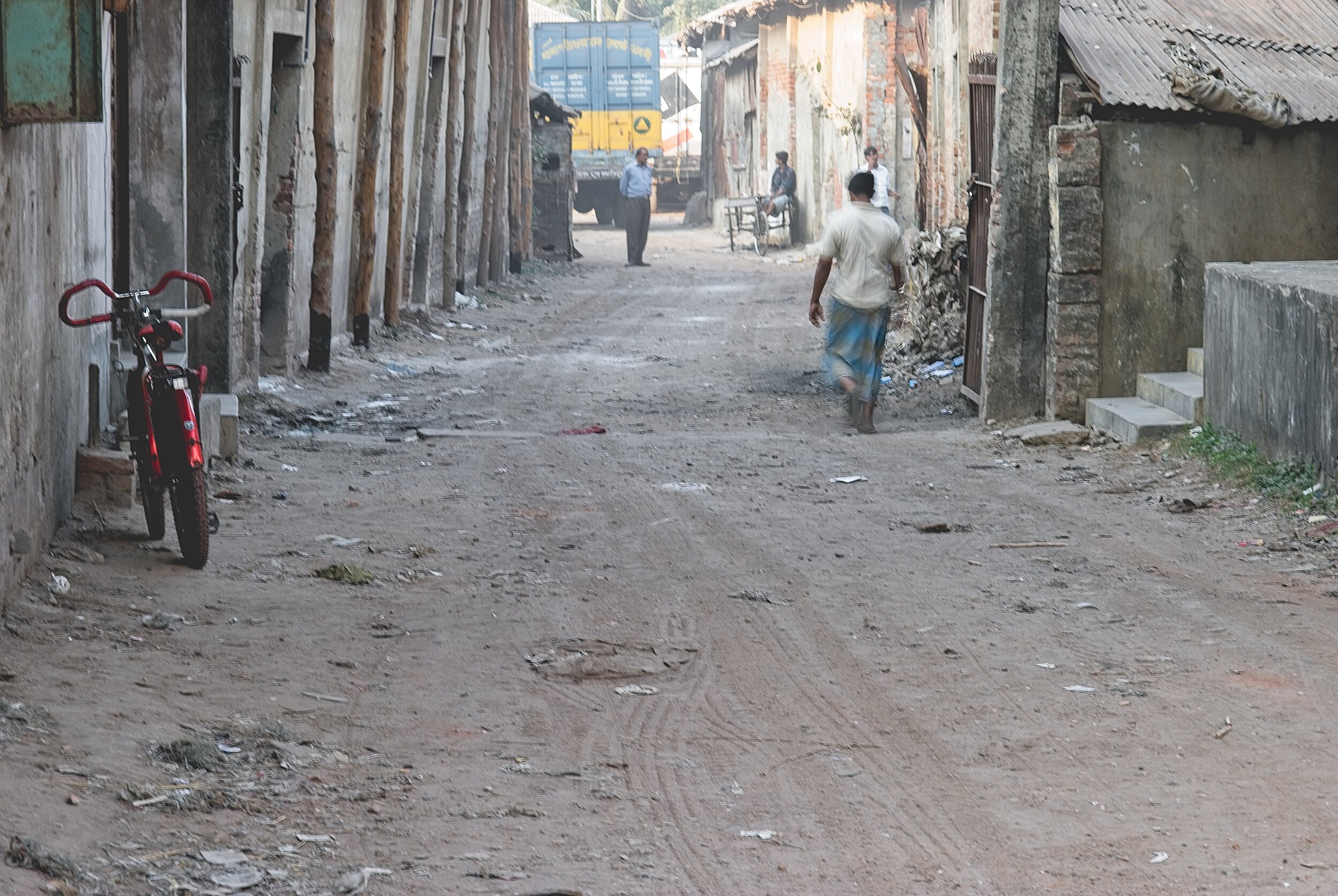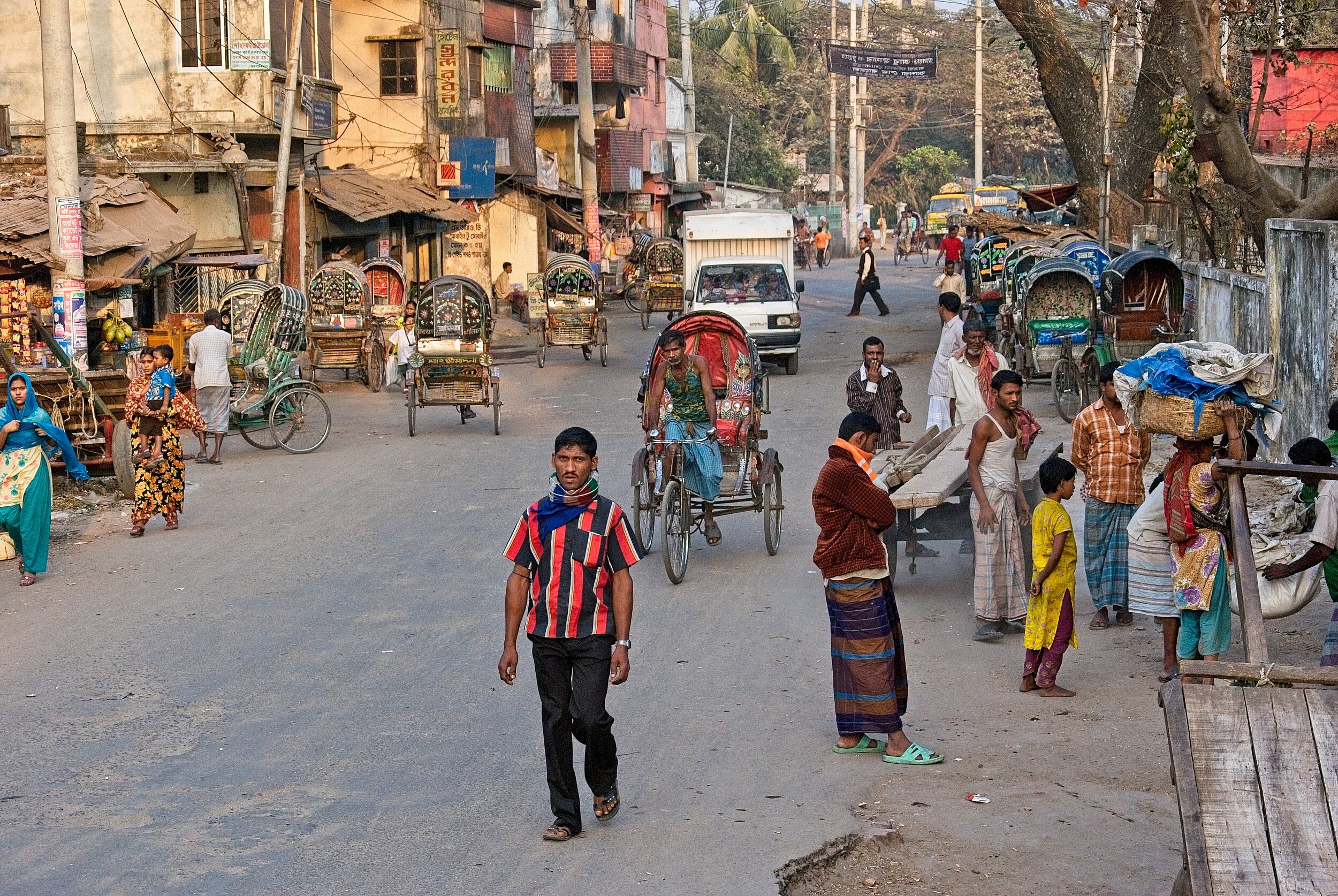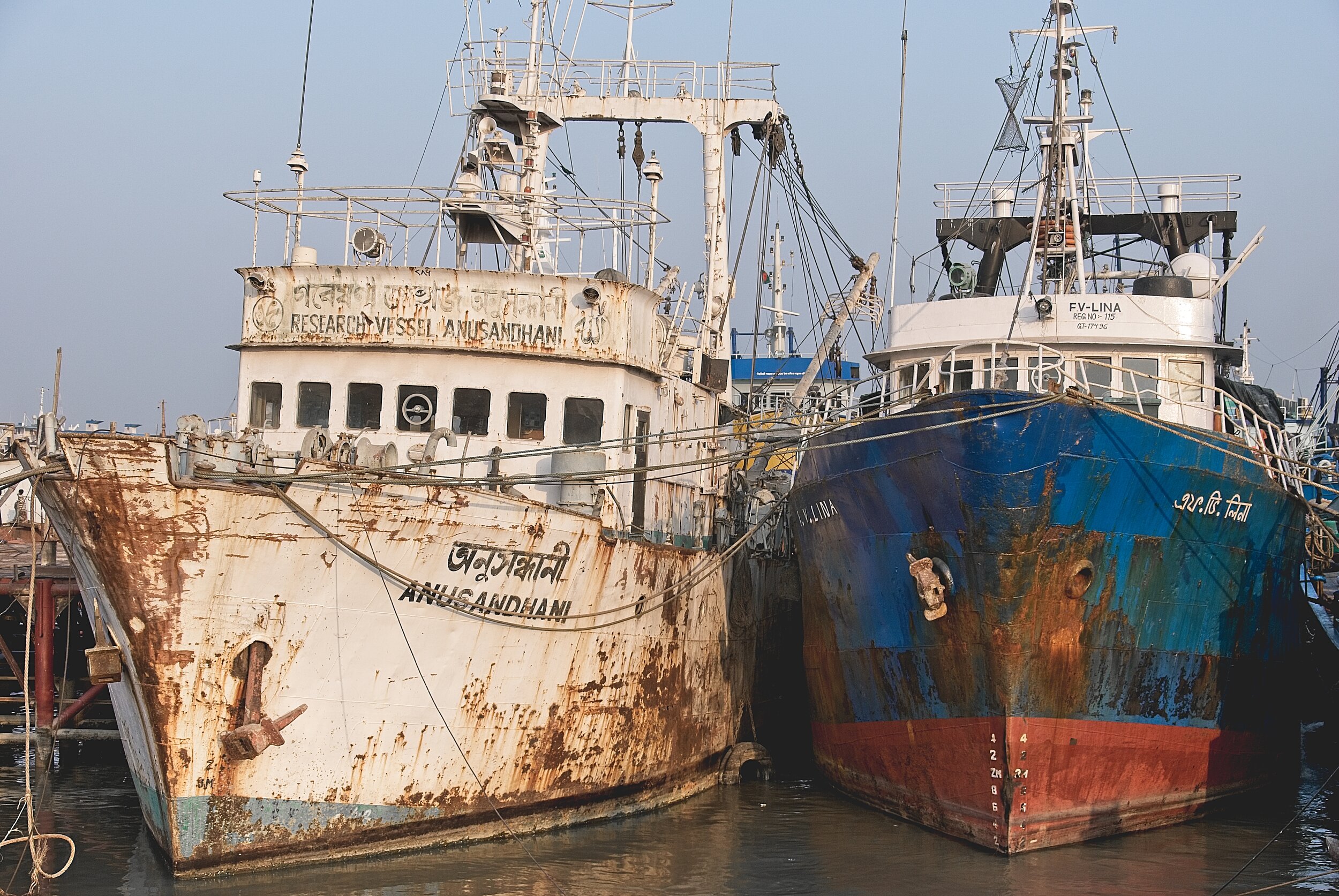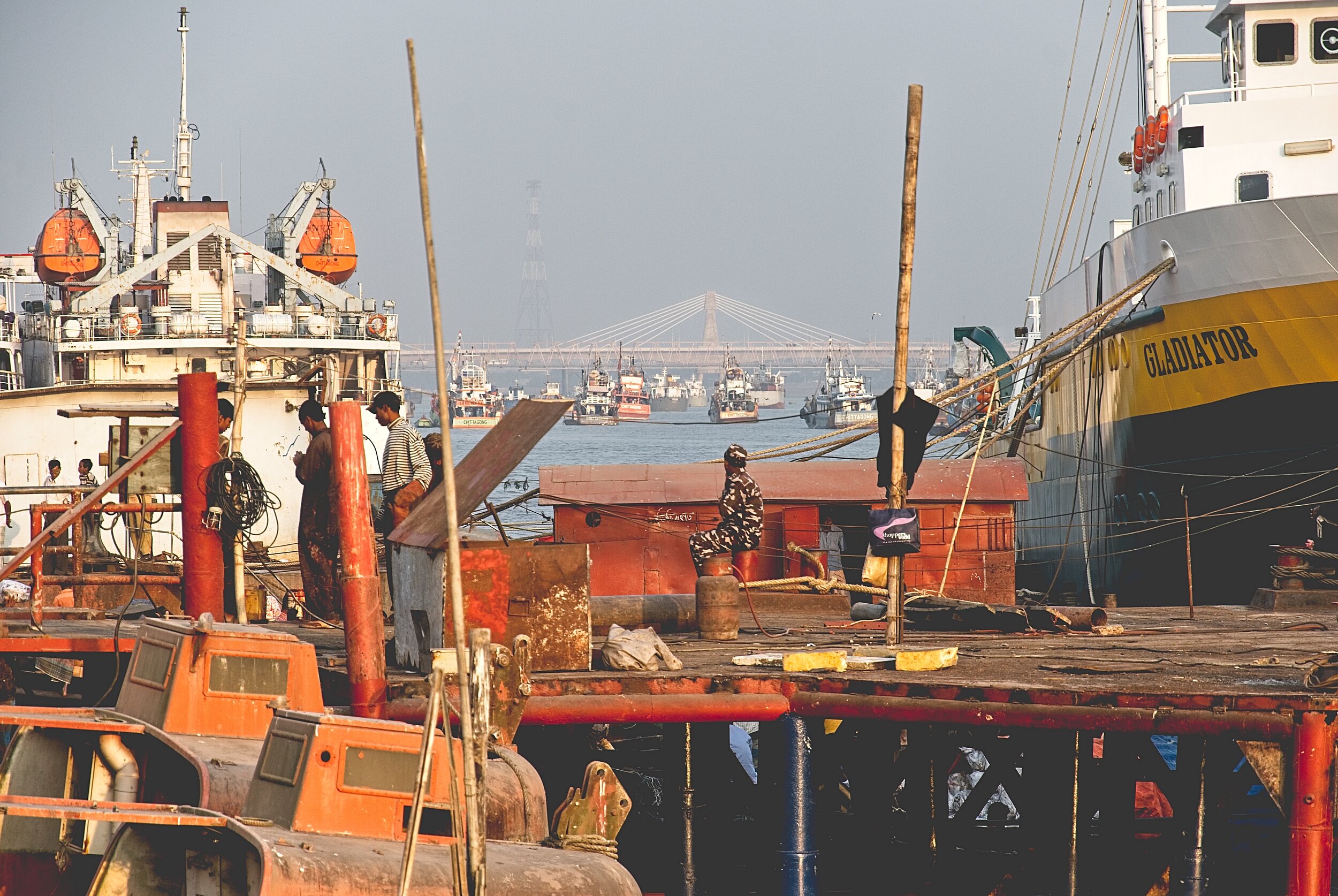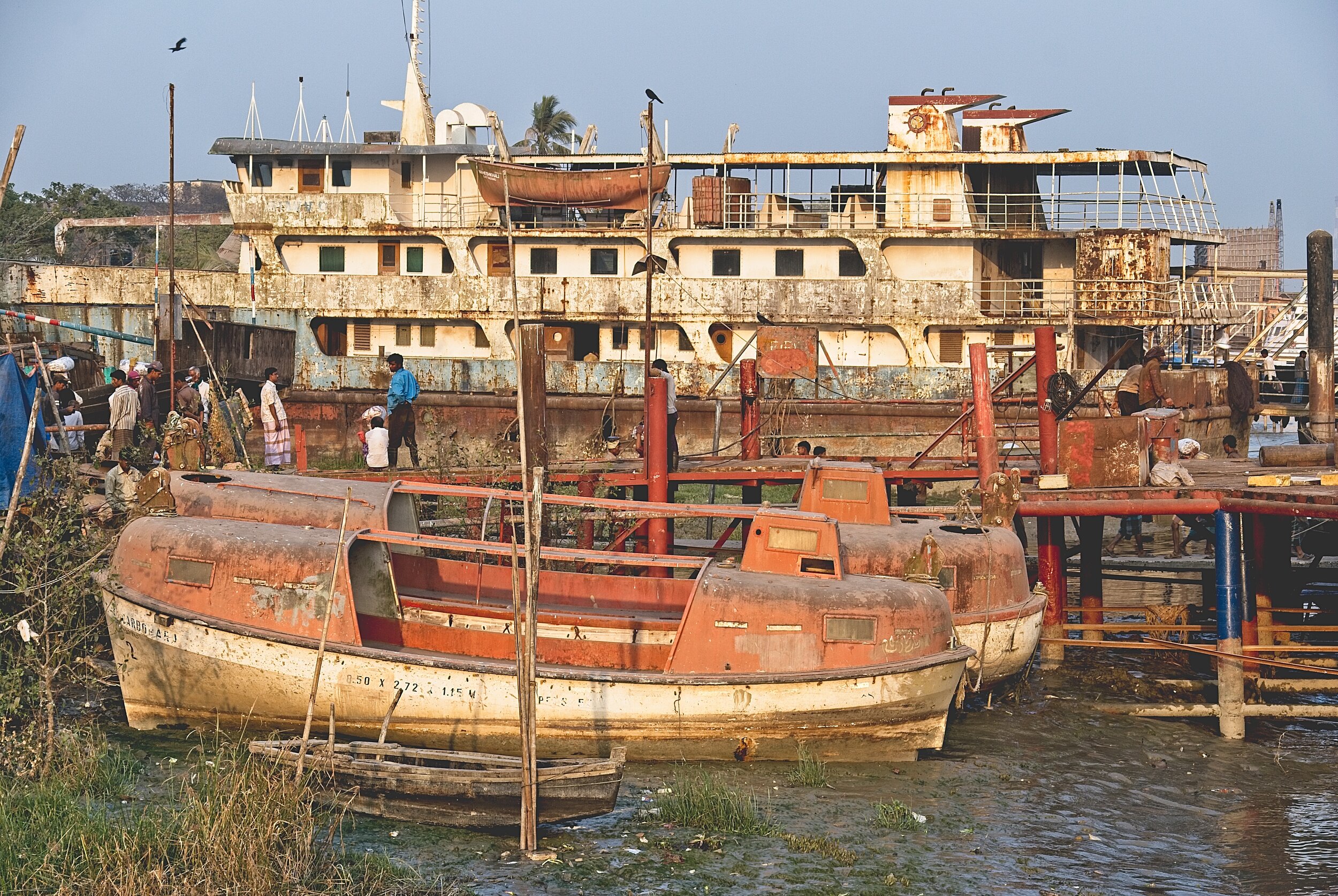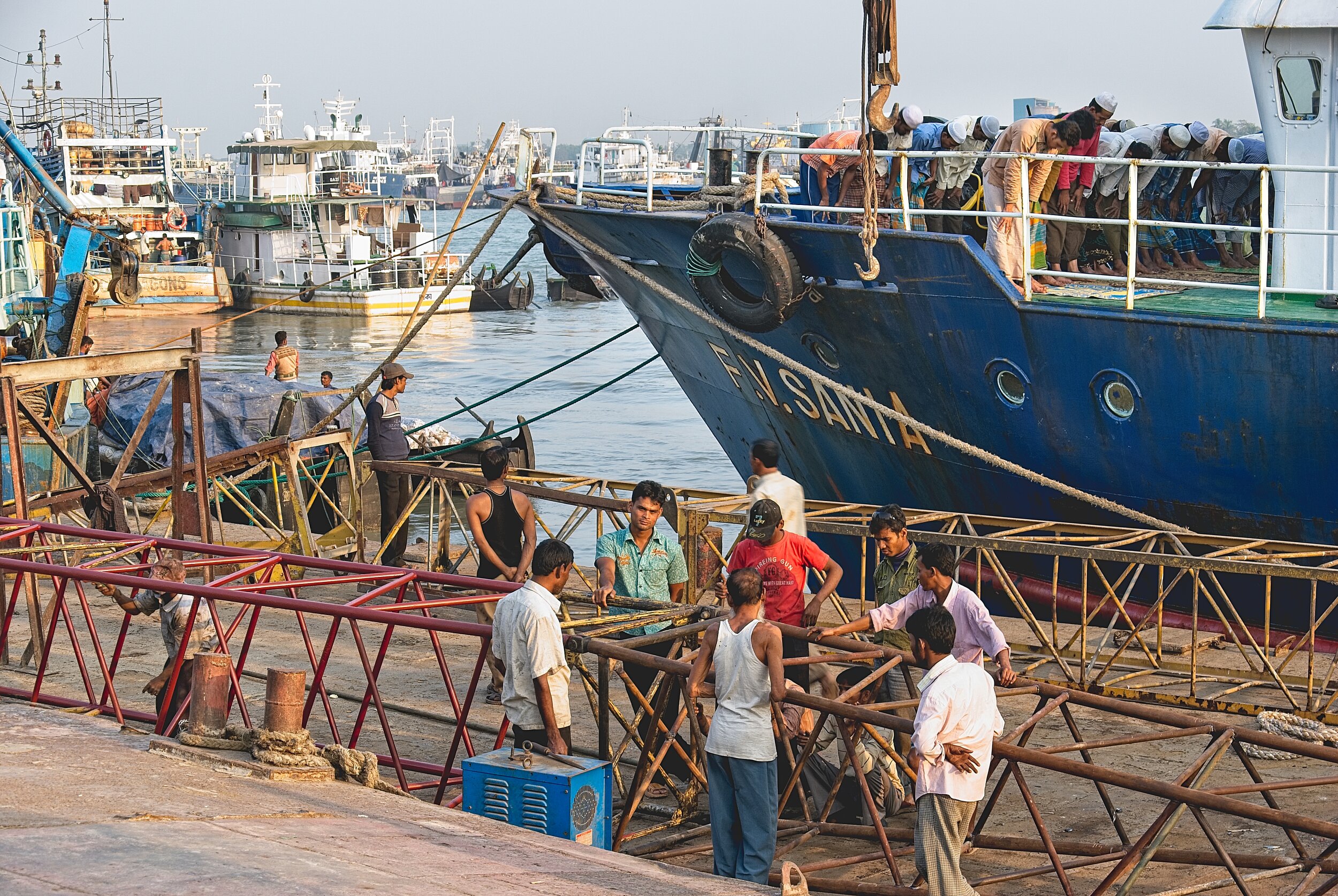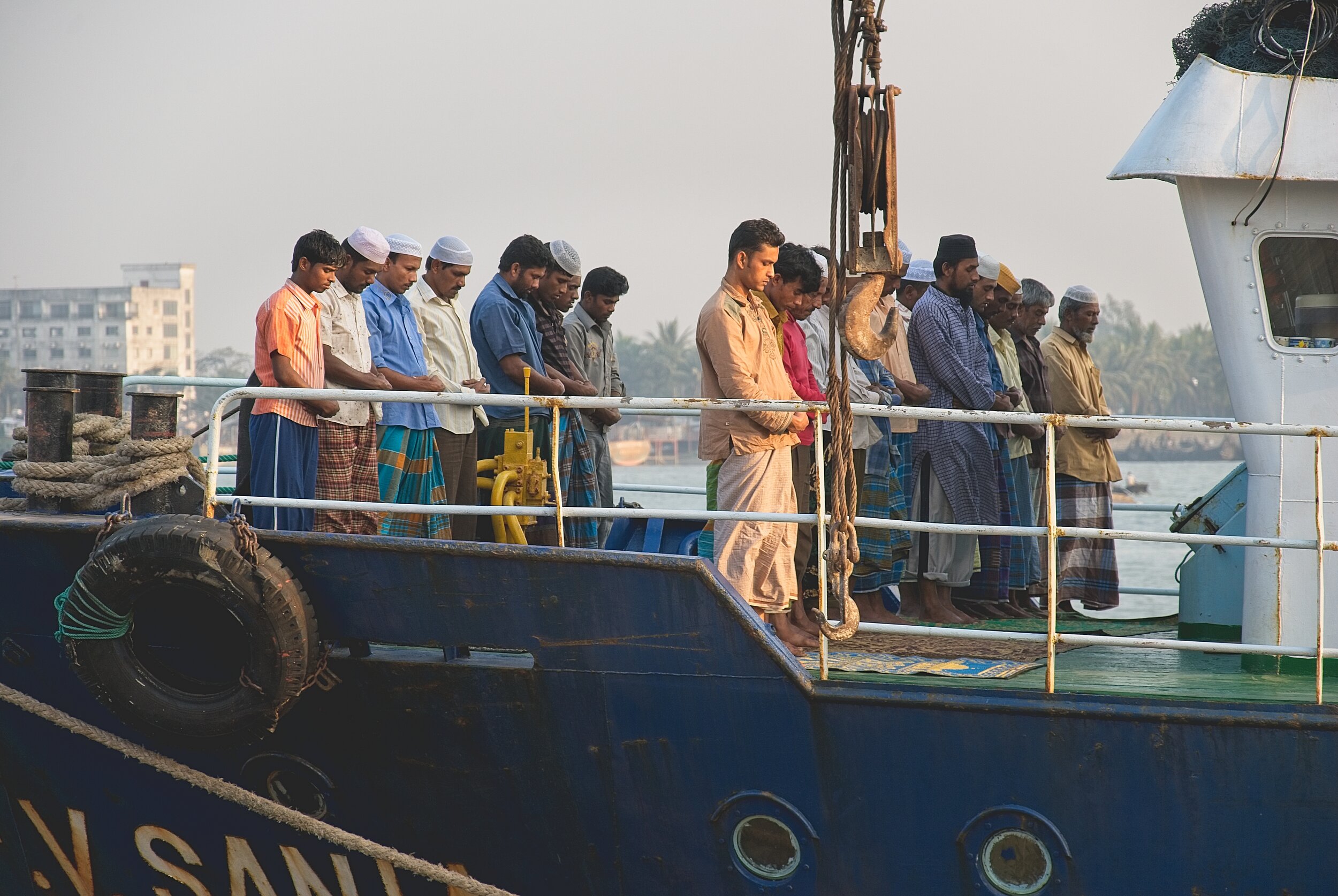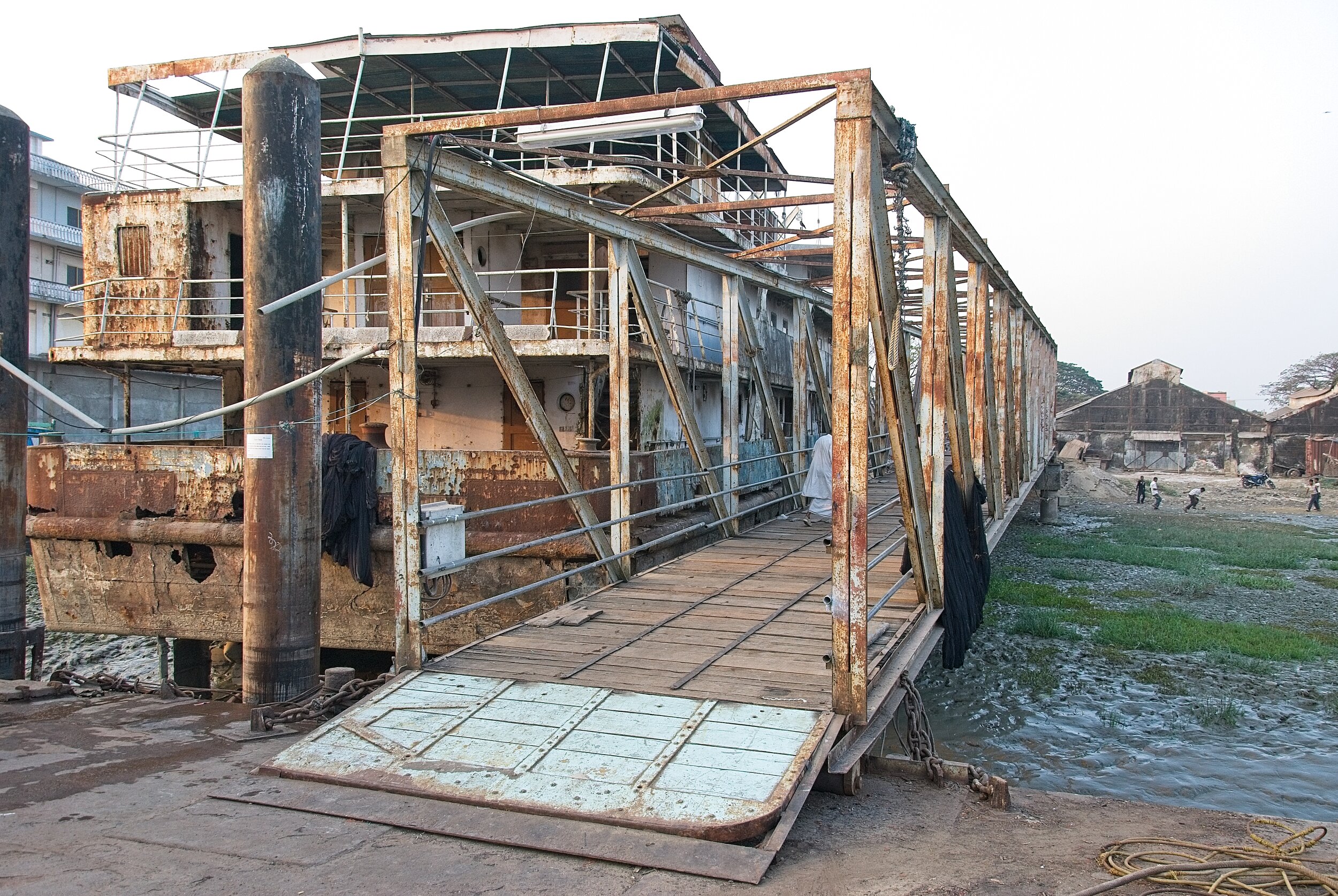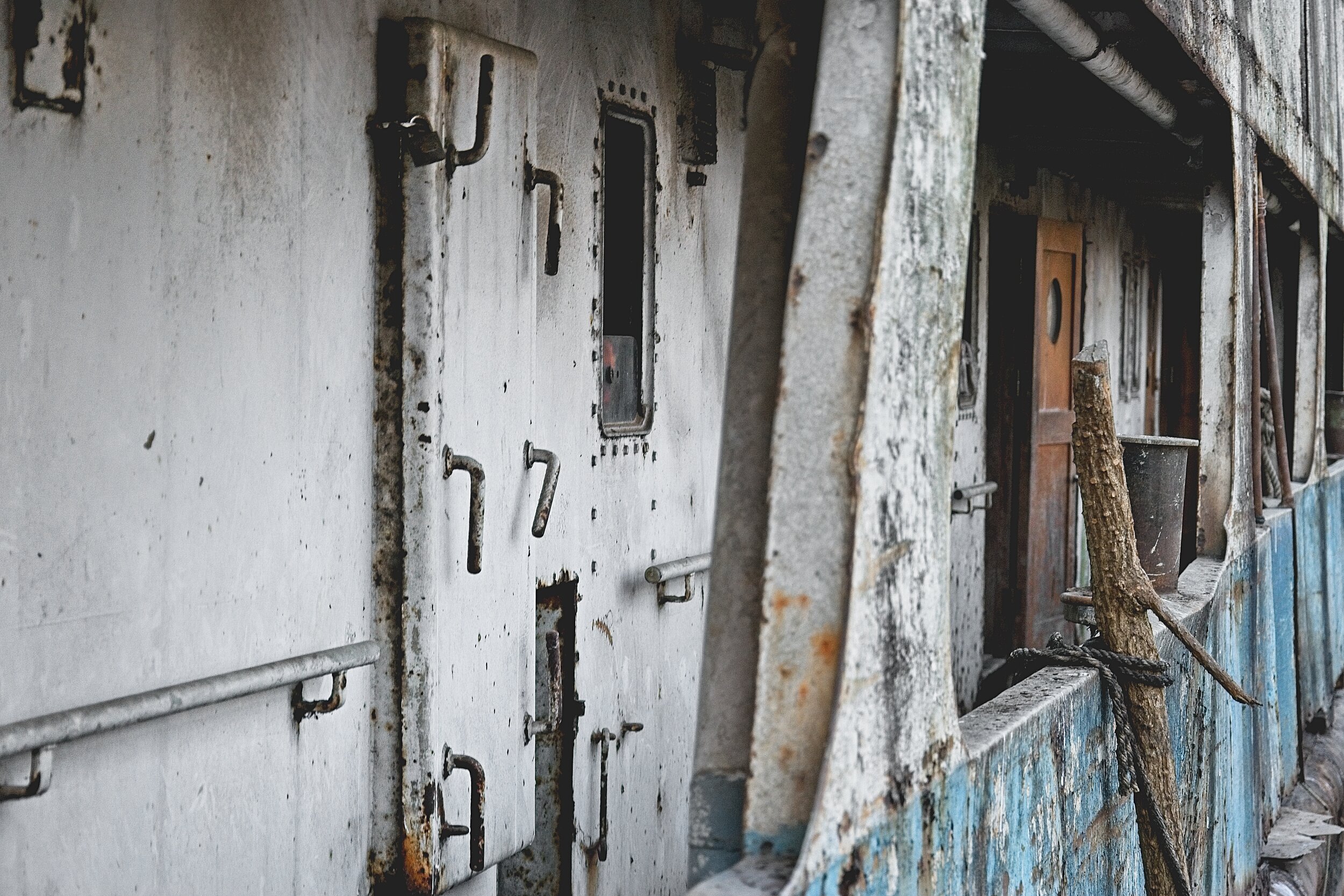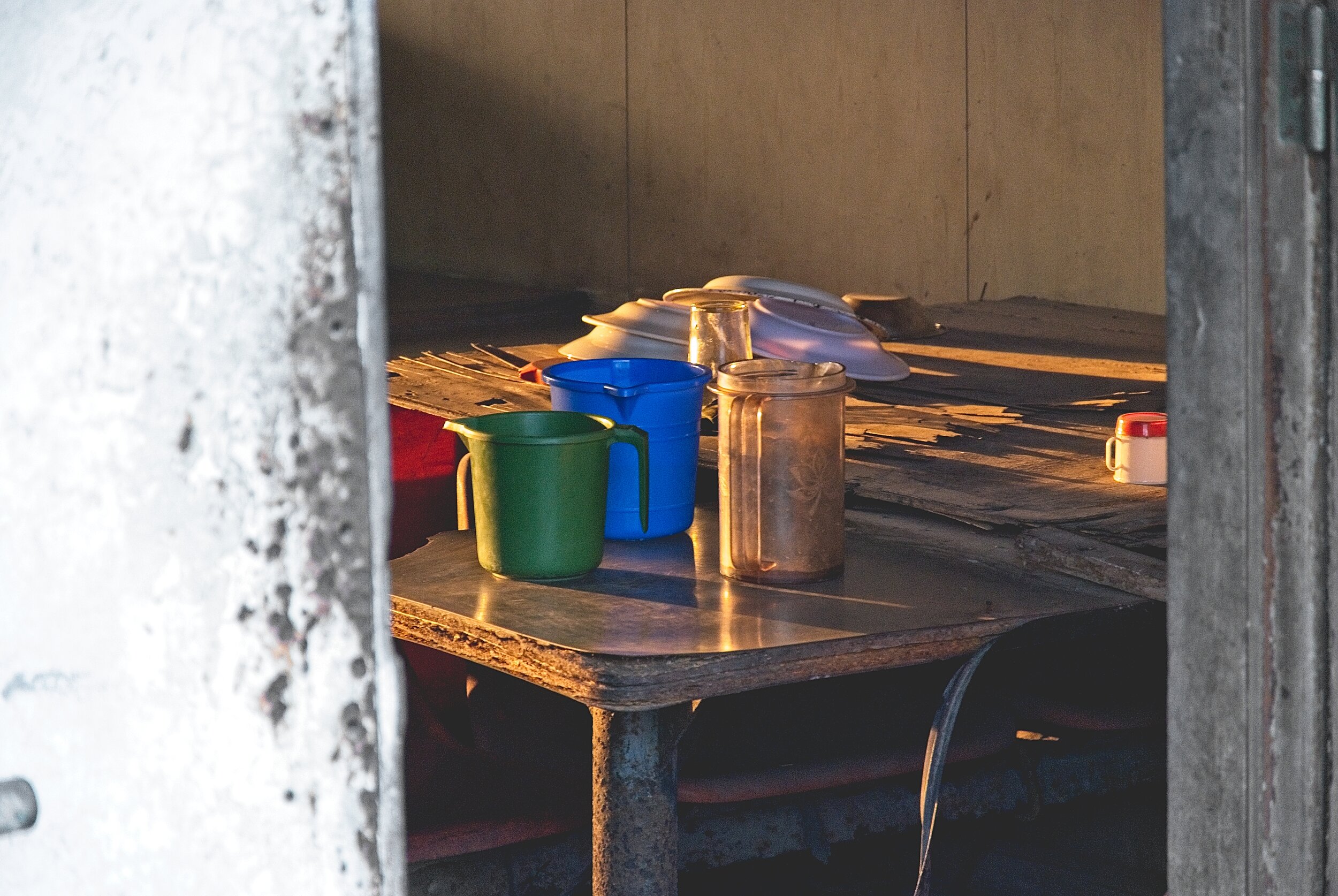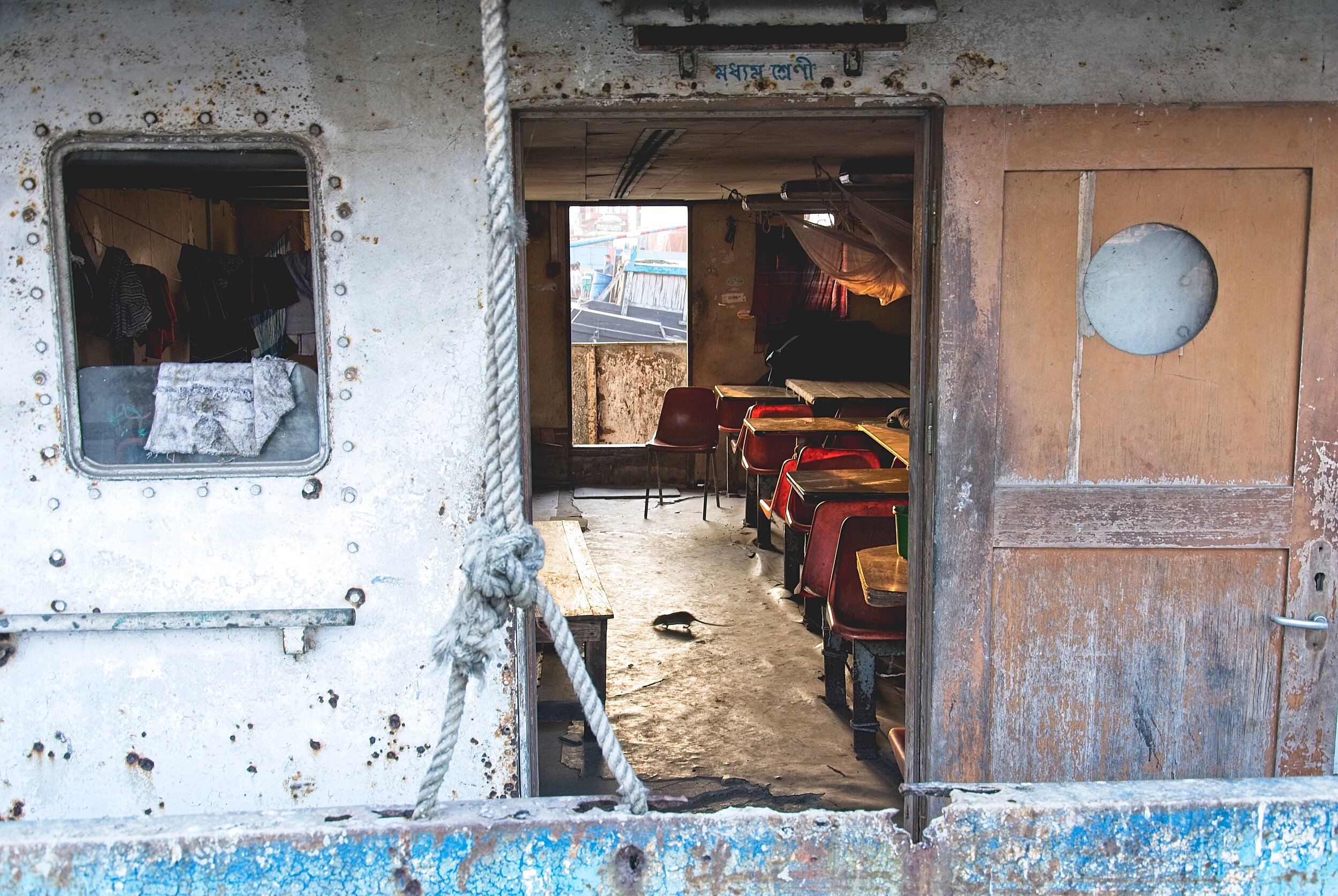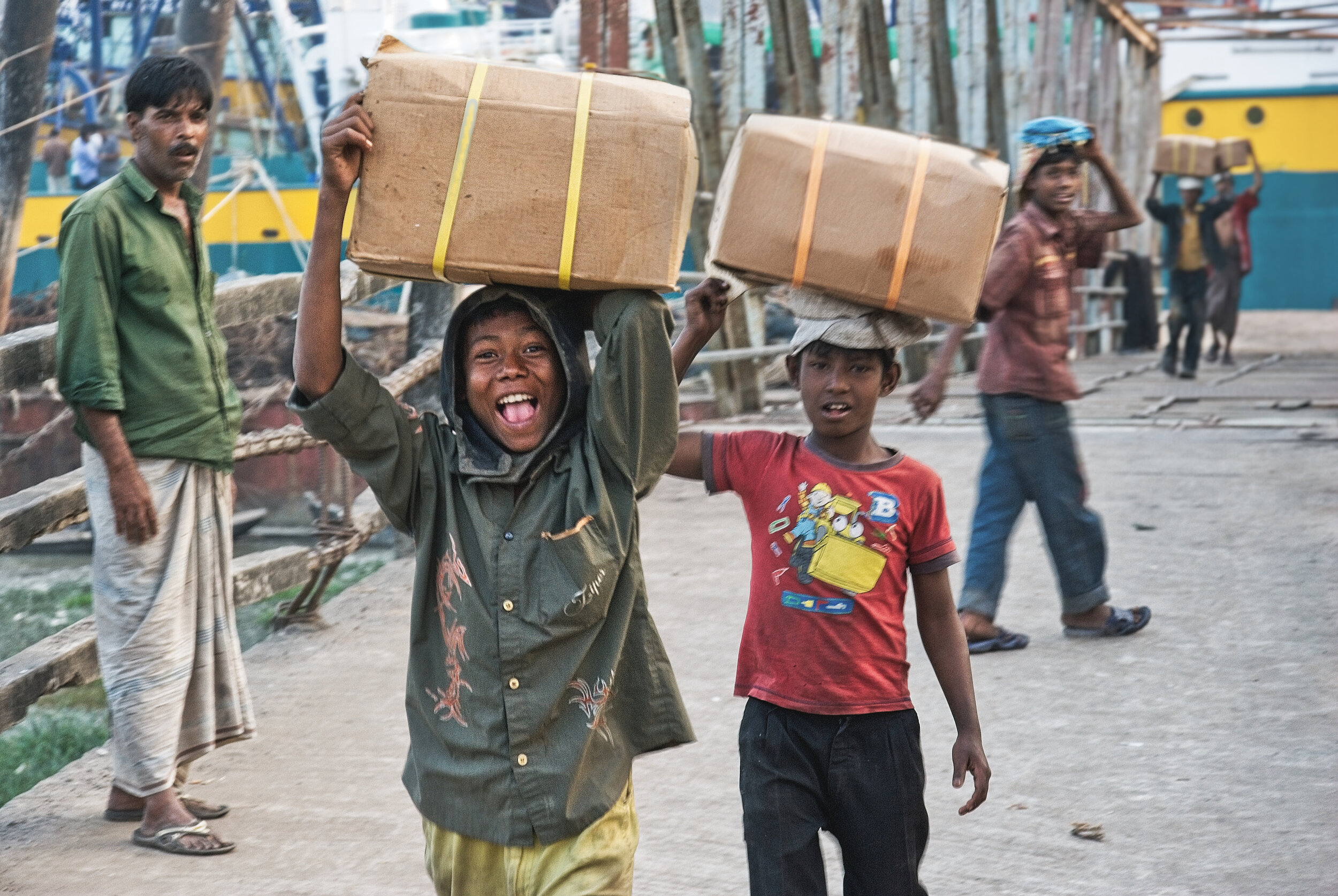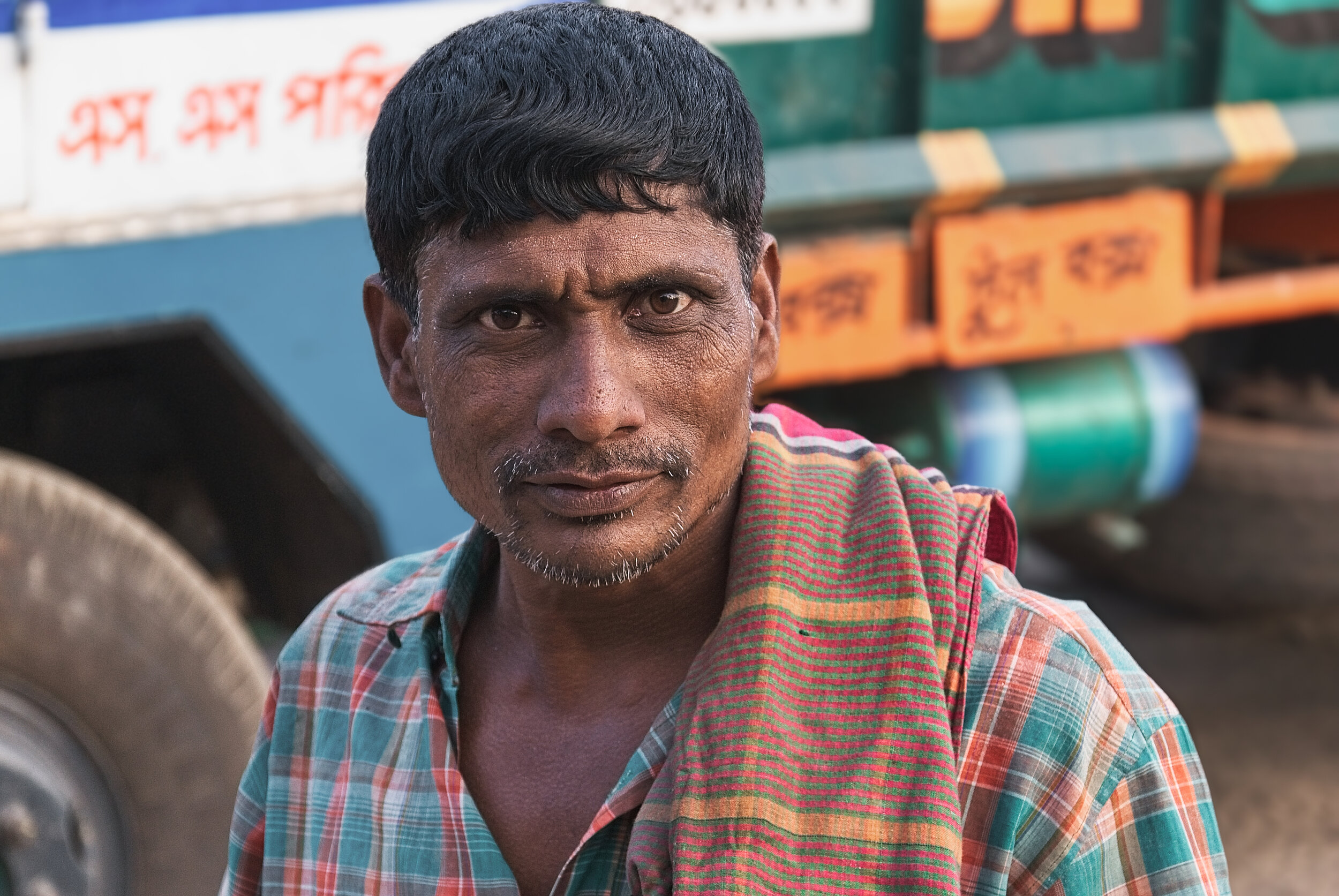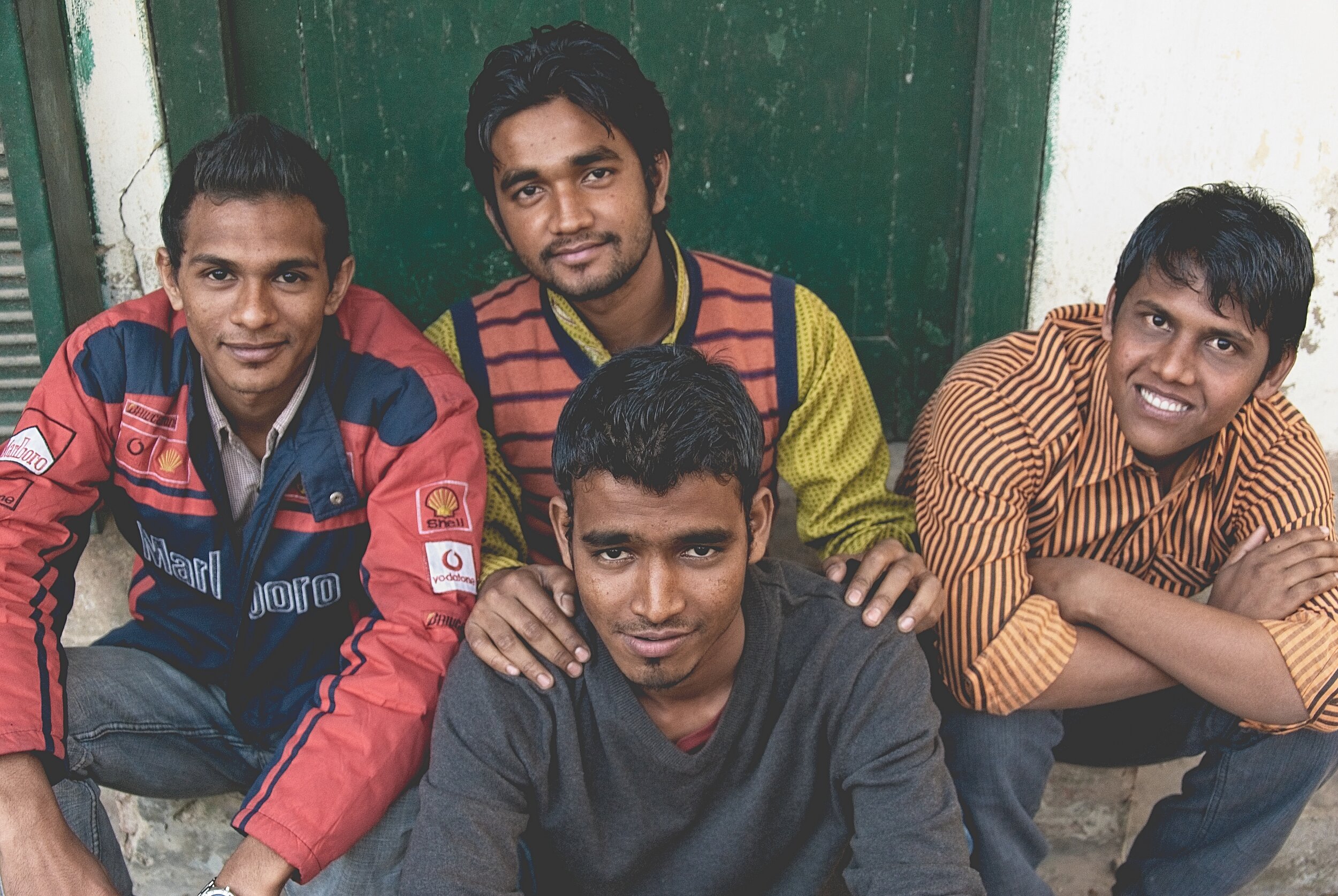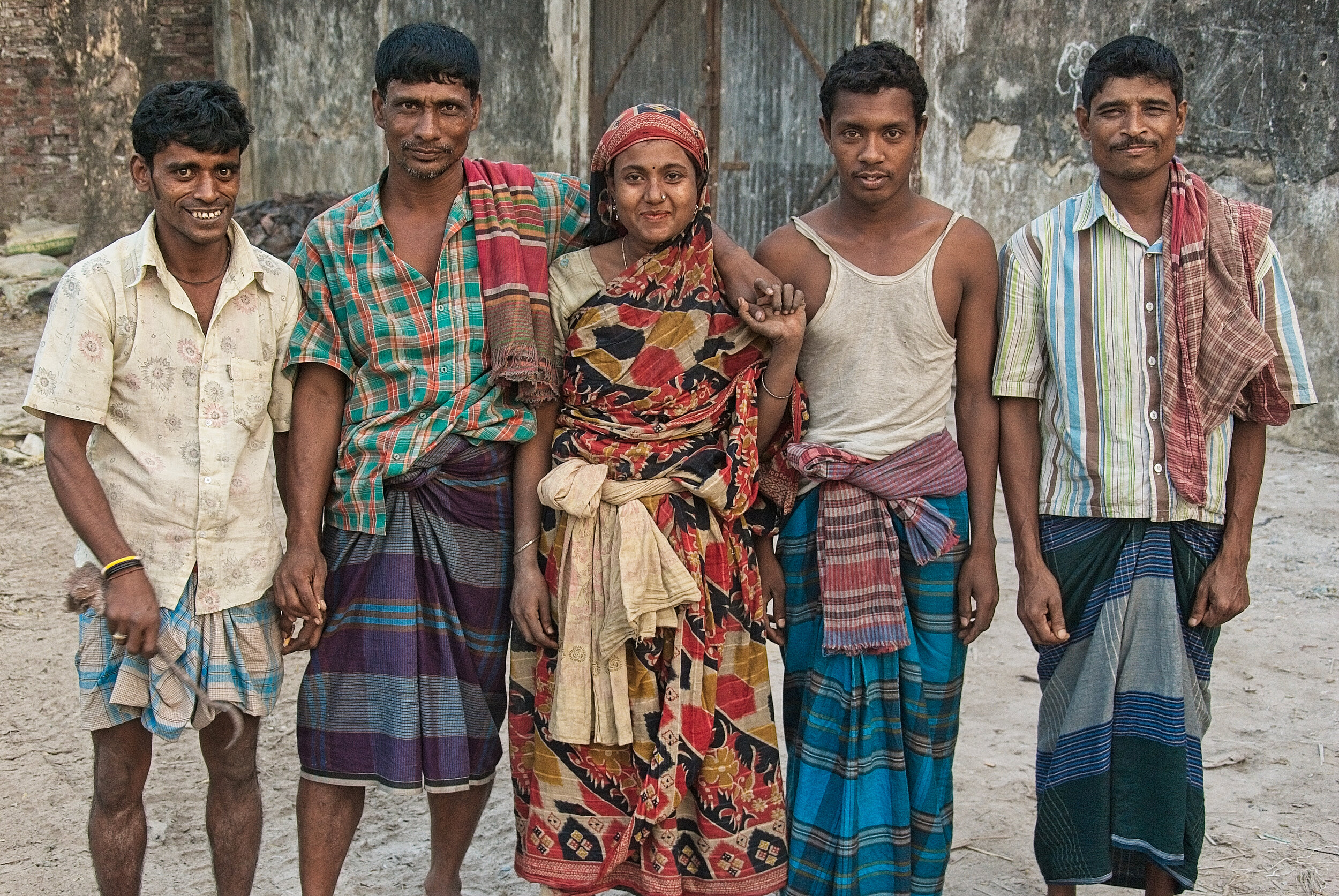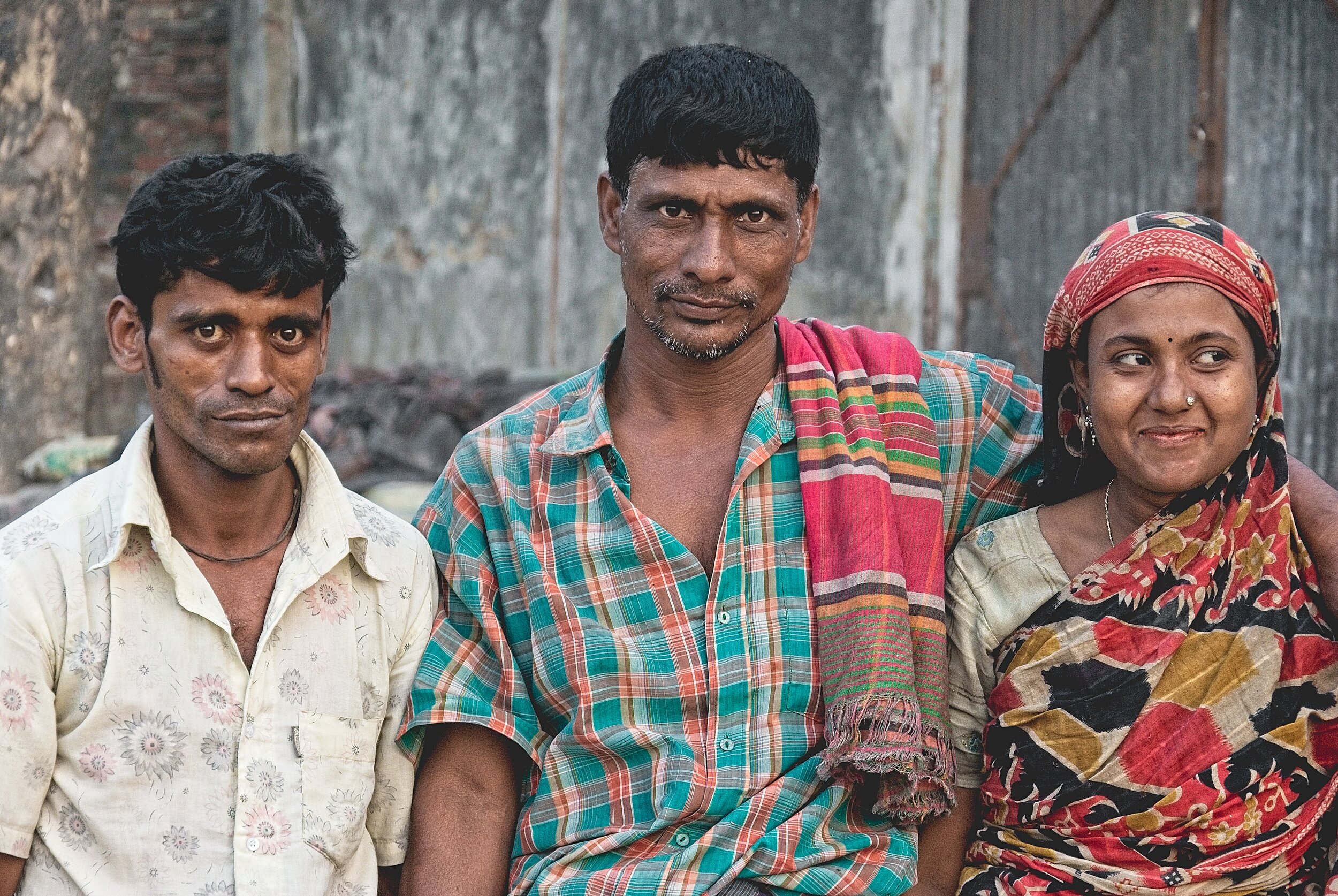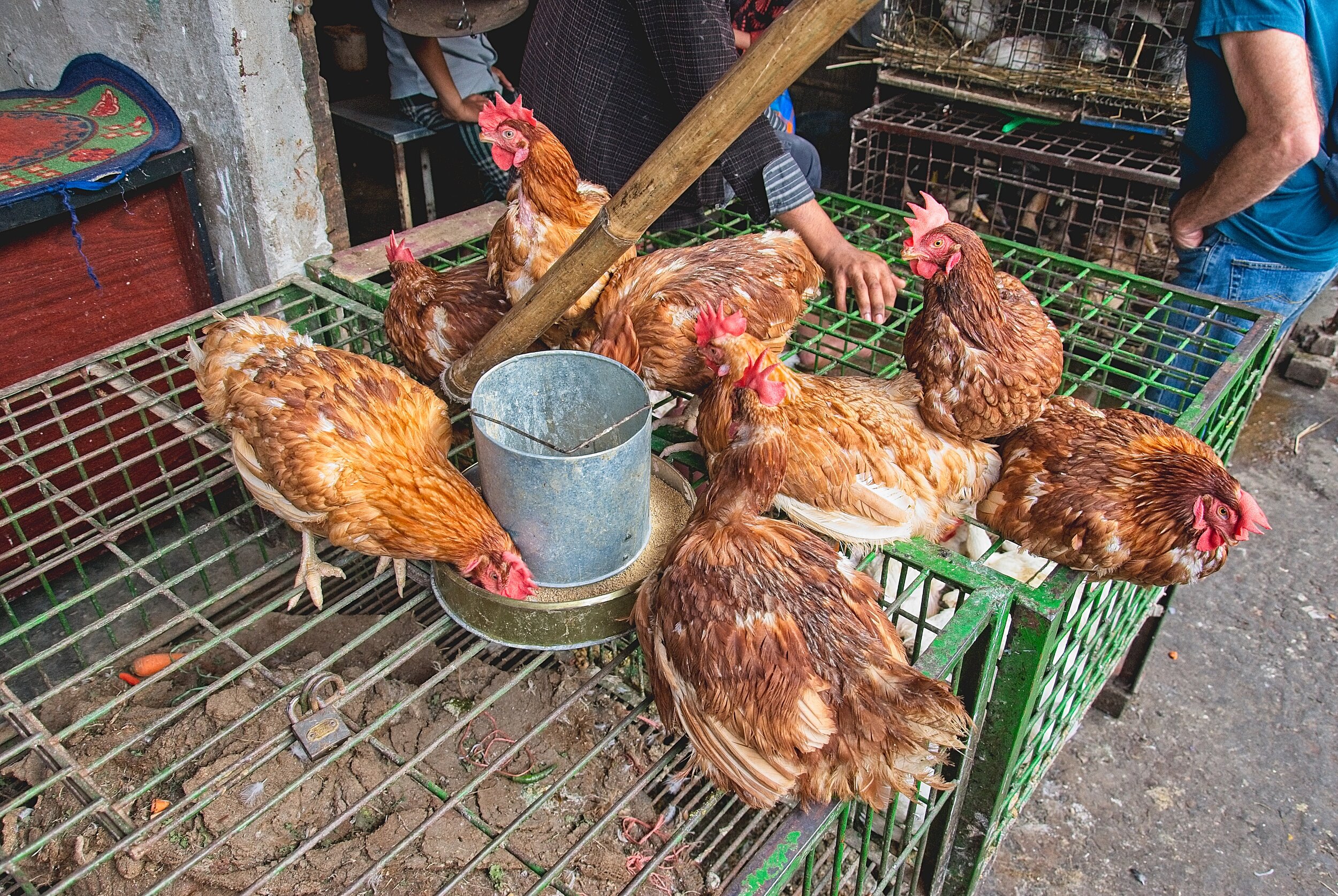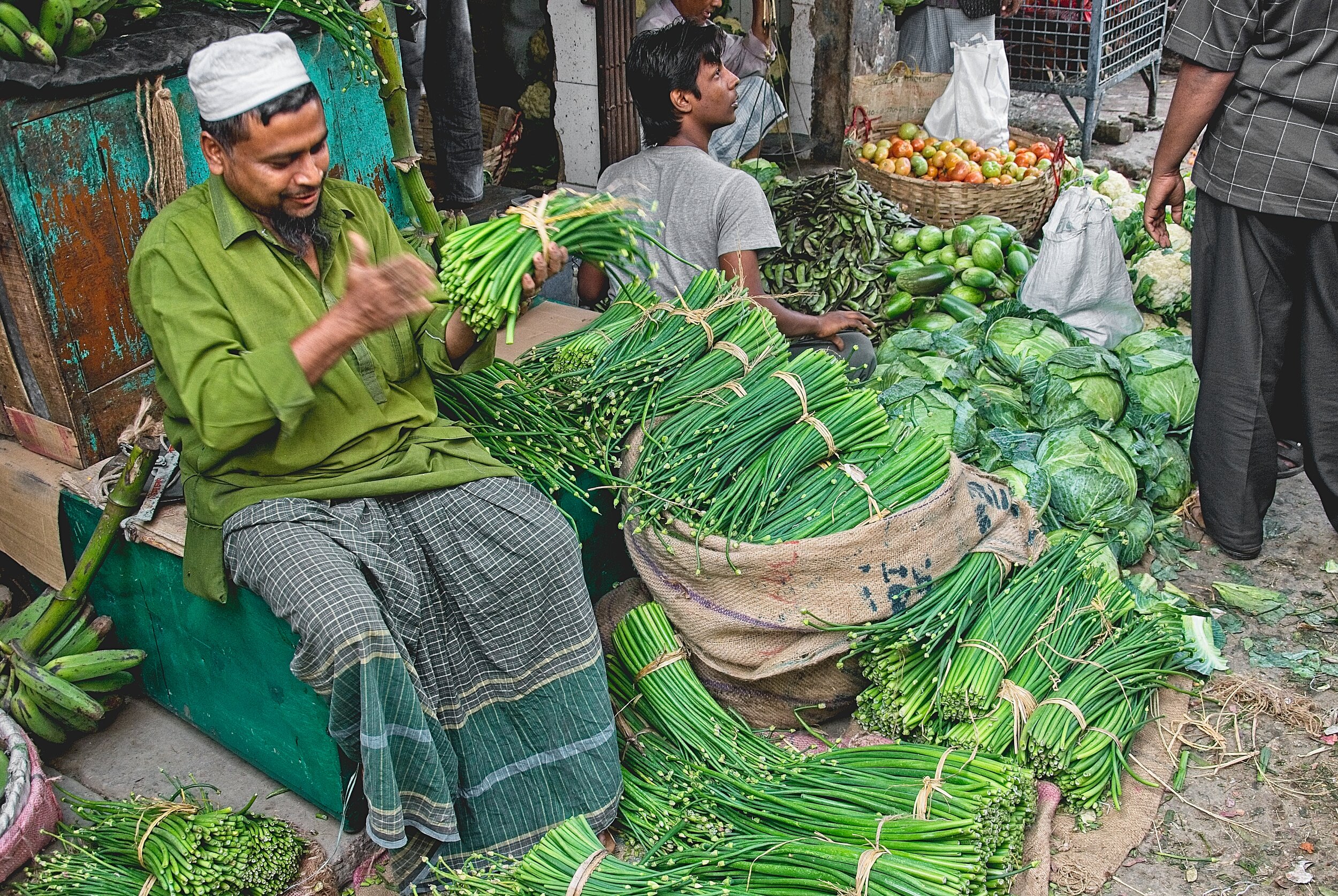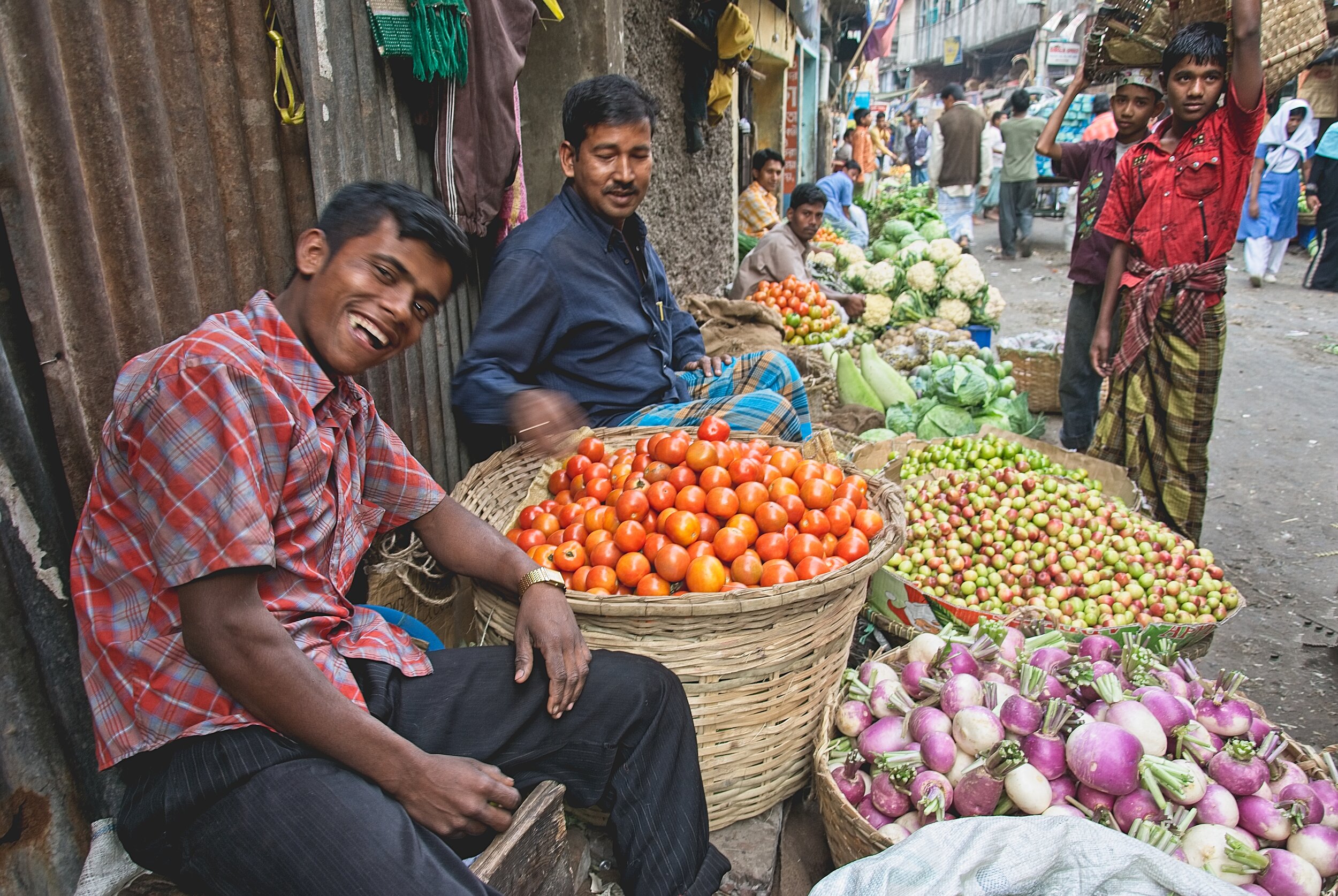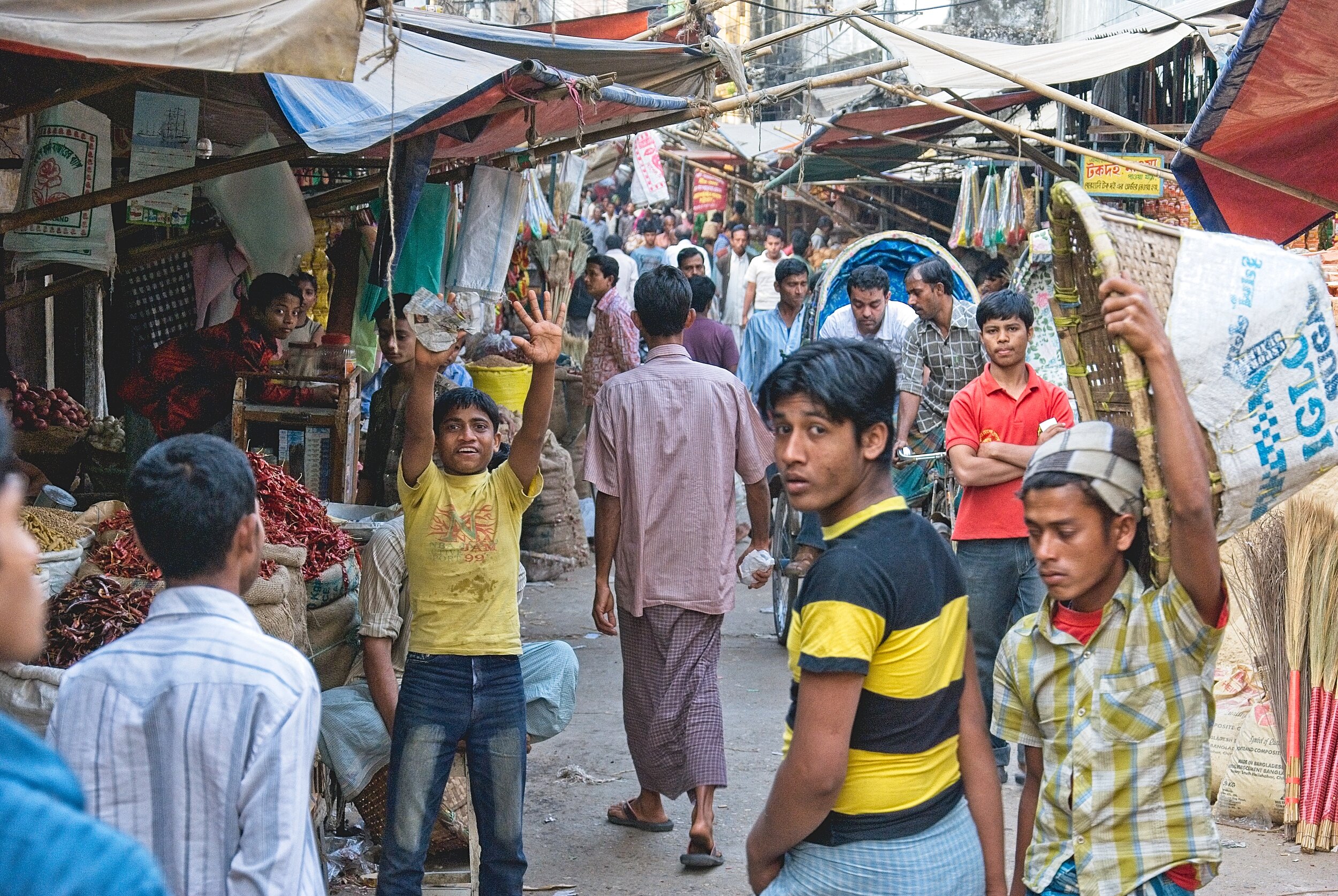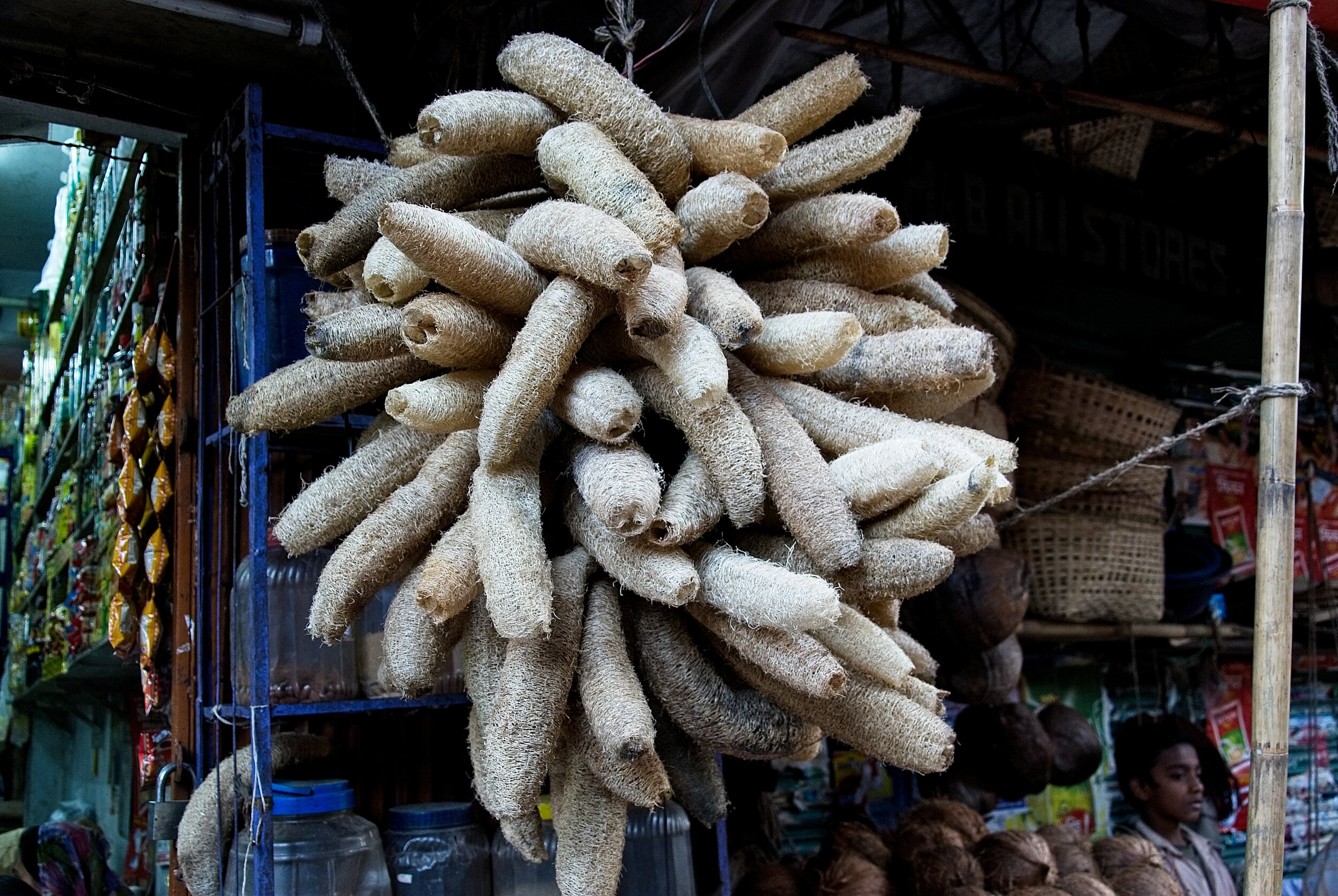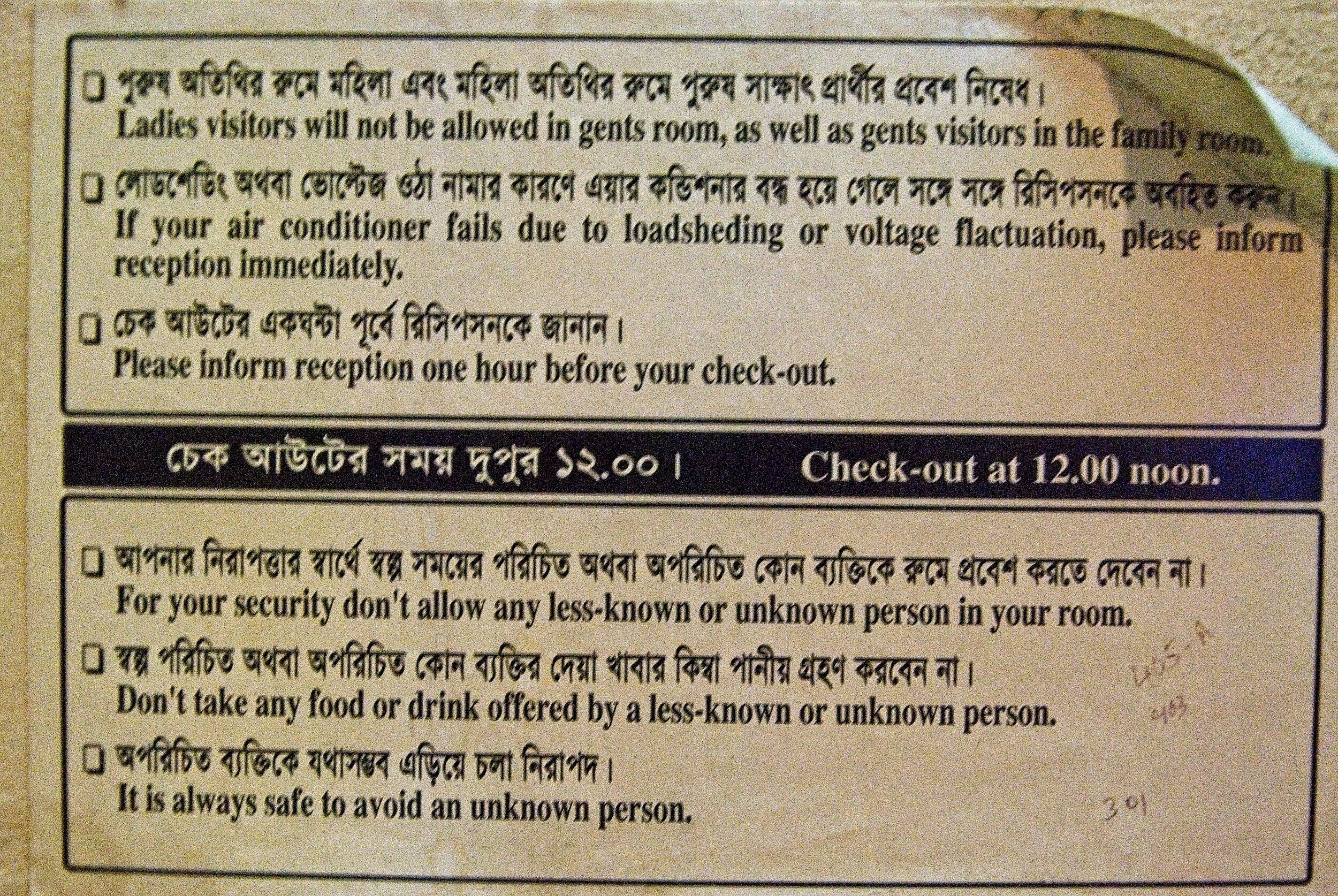113 - Shiny Happy People (Chittagong, Bangladesh)
CHITTAGONG IS NOTORIOUS FOR THE SHIP-BREAKING YARDS lining the coast twelve miles northwest of the city. I wanted in. My hopes were as high as my expectations were low. Once upon a time, strolling the shoreline among the deconstructed behemoths was hassle-free. Not so anymore. (Or is it?*) There’s a reason these graveyards don’t exist in the developed world, they’re a public health nightmare. Their very existence belies a desperation reserved for unregulated industries in economically depressed regions (India, Bangladesh, Turkey, Pakistan, Russia, etc.) Not too hard to imagine why tearing apart an ocean-going supertanker with sledgehammers and blow torches might be a dodgy proposition. It’s not profitable where regulations get in the way.
(*It would seem the situation has changed… again. From what I can glean from the interwebs (see here, here, or here), day excursions are now part of the standard tourist fare, running anywhere from $180-250 US. Even the local Marriott is getting in on the action. What was once verboten is now mainstream.)
“Virtually impossible” was how the Lonely Planet described one’s chances of gaining access. I wonder, even to this day, if the LP was engaged in a smidge of social activism and/or CYA (Cover Your Ass) liability aversion. I can’t say I envied the author’s predicament. How do you draw attention to the insanity without feeding curiosity, a curiosity that lies at the heart of the LP’s success? To describe is to highlight, to imbue with fascination. I didn’t need the guidebook to tell me this is something I needed to see, but I’m not sure providing contacts and tactical plans for gaining entrance was a responsible course of action. Then again…
That’s not to say they were off about success rates. Getting in was hit or miss (mostly miss). Years of negative press all but ensured failure for the majority. I’ve mentioned previously that Bangladesh was anything but a hot tourist destination, which means there’s a better-than-average chance anyone wanting a peek was a journalist or an activist. This was enough to make even the more liberal of site foreman skittish.
Still, it wasn’t quite “virtually impossible.” A French couple got inside after being denied at several yards but were told to put away their cameras. I ran into an Australian fellow at my hotel who met with equally limited success. He did manage to snap a few surreptitious photos on his compact camera. I was cautiously optimistic persistence might just pay off. I had time and extra money to grease the wheels, so I crossed my testicles and prayed.
My deliverance was allegedly at hand. A young male employee (Rahmat) at the hotel (Hotel Golden Inn) assured me of full access. The claim seemed dubious, but he did not. Though his English was less than stellar, he was exceedingly friendly and had an aura of trustworthiness hard to dismiss. He said he had an inside connection and pictures would be no problem. I figured this would be the first in a long string of disappointments, but saw little downside to going for it. As he had the next day off, he told me to meet him outside the hotel in the morning.
That left an afternoon to kill. Rahmat suggested I head to Sadarghat, the waterfront area along the Karnaphuli River, the city’s oldest section. He hailed an autorickshaw and gave instructions. I had no idea where I was headed and merely complied when the driver grunted and pointed down an alley.
As I disembarked, I thought I heard the proverbial record scratch, stranger in a strange land, and all that shit. Folks weren’t accustomed to tall white men haunting the streets. The atmosphere was frantic, all the sights and sounds indicative of traffic congestion mixed with people in the swarm of everyday life. Calls for photos and offers of tea erupted immediately. I ventured down an open-air corridor ripe with the smell of salty sewage and other aromas beyond identification. A gully, filled with garbage and putrid sludge, ran its length. A boy tasked with clearing the gutter used a rope tied to a sandbag the width of the recess to usher detritus into the river.
At the river, I was speechless. Men and boys paraded frantically from small ships to weight scales with baskets of white grainy material atop their heads. I soon realized this was salt and that this patch of riverfront was where it was unloaded, weighed, and initially processed. Nobody was screwing around. It was like watching leaf-cutter ants moving with military speed, discipline, and precision. I had to watch my step to avoid being trampled.
There’s one surefire way to gum up the works—take out a camera and start firing away. Everyone wanted in, much to the dismay of those on a tight schedule. Men hauling salt. Men weighing salt. Men bathing in the filthiest water you could imagine. I took most of my pictures while standing on a pile of trash. Amid all this ugliness were men behaving like the happiest on earth. Remarkable. And don't let the conspicuous lack of smiling fool you. These folks were giddy. Smiling for pictures ain’t the norm everywhere.
A thousand shots later, I returned to the main road. By this time, I had a seventeen-year-old Bangladeshi student serving as facilitator. We stopped for a spot of tea (his dime) and then he showed me other areas of the waterfront. More stimulus overload along with everyone and their mother begging for a photo they would see but once on my LCD. I saw the crew of a ship heeding the call to prayer, discovered the price of a duck (about $4), met the owner of a slushy operation (he implored me to photograph his truck), and came face to face with child labor all while stifling my vomit reflex. (See olfactory assault I mentioned above). Amazing. Inspiring. Heart-wrenching. Disgusting. Unforgettable. Bangladesh.
At dusk, I headed back to the hotel where I reunited with an Australian (Andy) I'd first encountered at the Hillside Resort in Bandarban. He had a place in mind for dinner, so I tagged along. Patrolling the narrows of a Chittagong street market was an experience—crowded and chaotic to the point of vertigo. What’s for sale? Everything, or at least that’s what it felt like. I appeared to be in the vegetable, spice, chicken, fish, and luffa aisles that night. It was difficult to focus, for it was one attention bonanza after another. Everybody wanted to say hello, to pose for a photo. Folks were so warm and friendly, it was emotionally overwhelming at times. I wished to know these people, to hear about their lives, to siphon some of this unadulterated joy. Eating in the restaurant we settled on (not the one we searched for in vain) was on par with eating on stage at the Apollo Theater. Not so many tourists made their way there. The wait staff nearly fell over themselves serving us, although I think they were hoping for an uber tip.
It wasn’t all peaches and sunshine. I witnessed four altercations between Bangladeshi males, something I had yet to encounter even once. Full moon? High tide? One disagreement involved two rickshaw drivers engaging in a game of slappy smashface in the middle of a busy, dimly lit intersection. Luckily, reason prevailed. They pulled their rickshaws to the curb, so they could rumble responsibly. One driver had a passenger in the back who I’m assuming wasn’t in a hurry. The fight resembled two people hugging each other to death while yelling. It lasted about four seconds before an older gentleman broke it up.
**********
These are the hotel rules posted in my room with my own commentary/translation for dramatic effect:
- Ladies visitors will not be allowed in gents rooms, as well as gents visitors in the family room. (Promiscuous sex is really hard to come by in this country so if you’re a tad slutty, male or female, you may want to venture elsewhere.)
- If your air conditioner fails due to loadsheding or voltage flactuation, please inform reception immediately. (If it fails for any other reason, you’re fucked.)
- Please inform reception one hour before checkout. (You should also pre-inform reception one hour before you inform reception that you’ll be checking out in an hour just to be safe.)
- For your security don’t allow any less-known or unknown person in your room. (Less-known? People you’ve seen before but never actually spoken to, or people you’ve spoken to but with whom you’ve never had a meaningful conversation. If you’re not privy to this person’s last name, marital status, and religious disposition, then he/she would be considered a ‘less-known’ person. If you are privy to that information, then that person would qualify as a ‘fairly well-known’ person. By all means, let them in, unless you are a “gents” and the fairly well-known person is a female, or you, as a lone “gents,” are trying to enter the fairly well-known person’s family room, or you are accompanied by someone but are considered by them (family room occupants) to be a less-known person.)
- Don’t take any food or drink offered by less-known or unknown person. (Other types of gifts are allowed (i.e. clothing, furniture, pharmaceutical products, etc.)).
- It is always safe to avoid an unknown person. (It’s advisable to never meet new people or make new friends. Too dangerous. If you traveling alone, we advise you to sit in your room and stare at this poster.)

